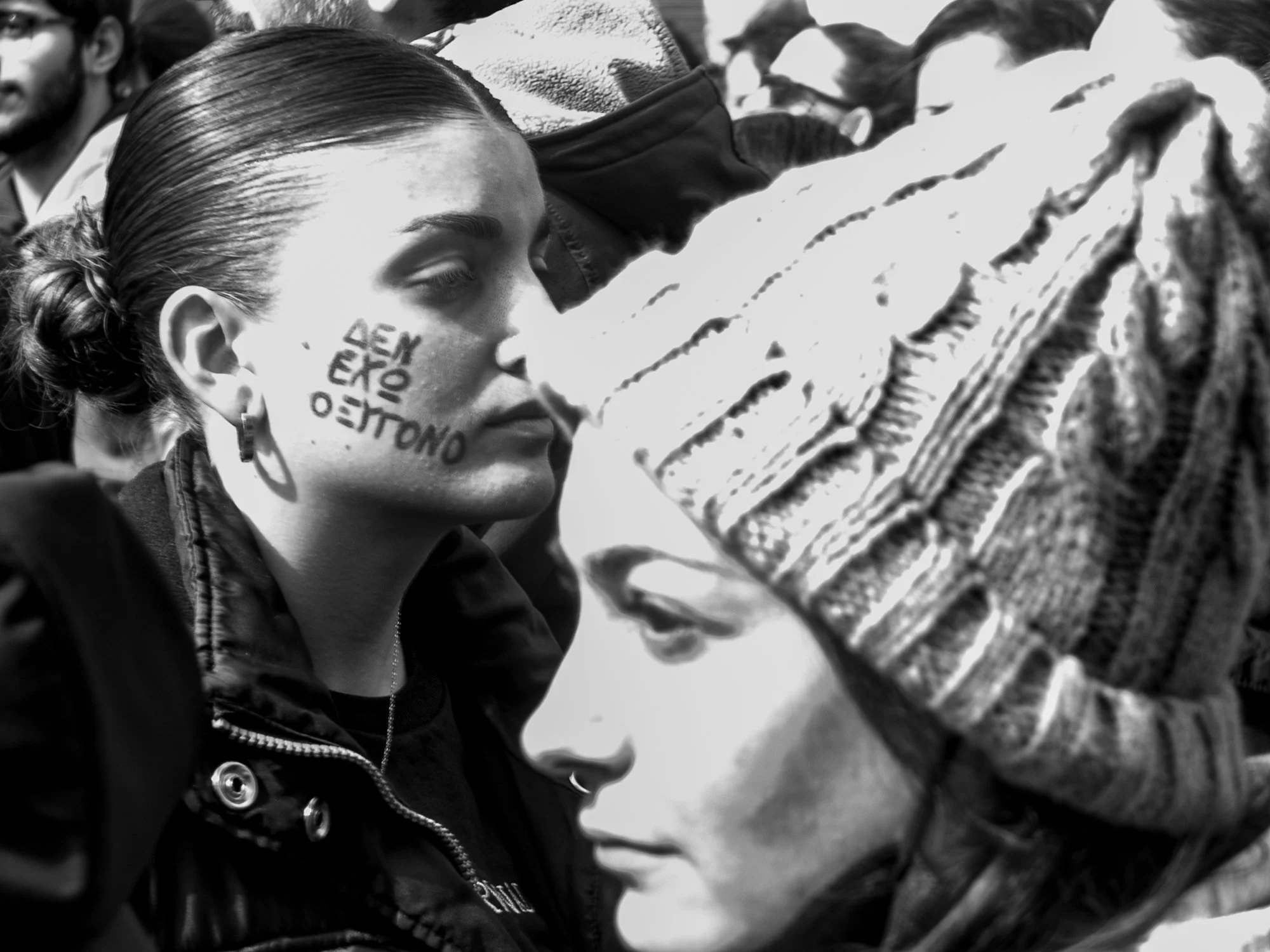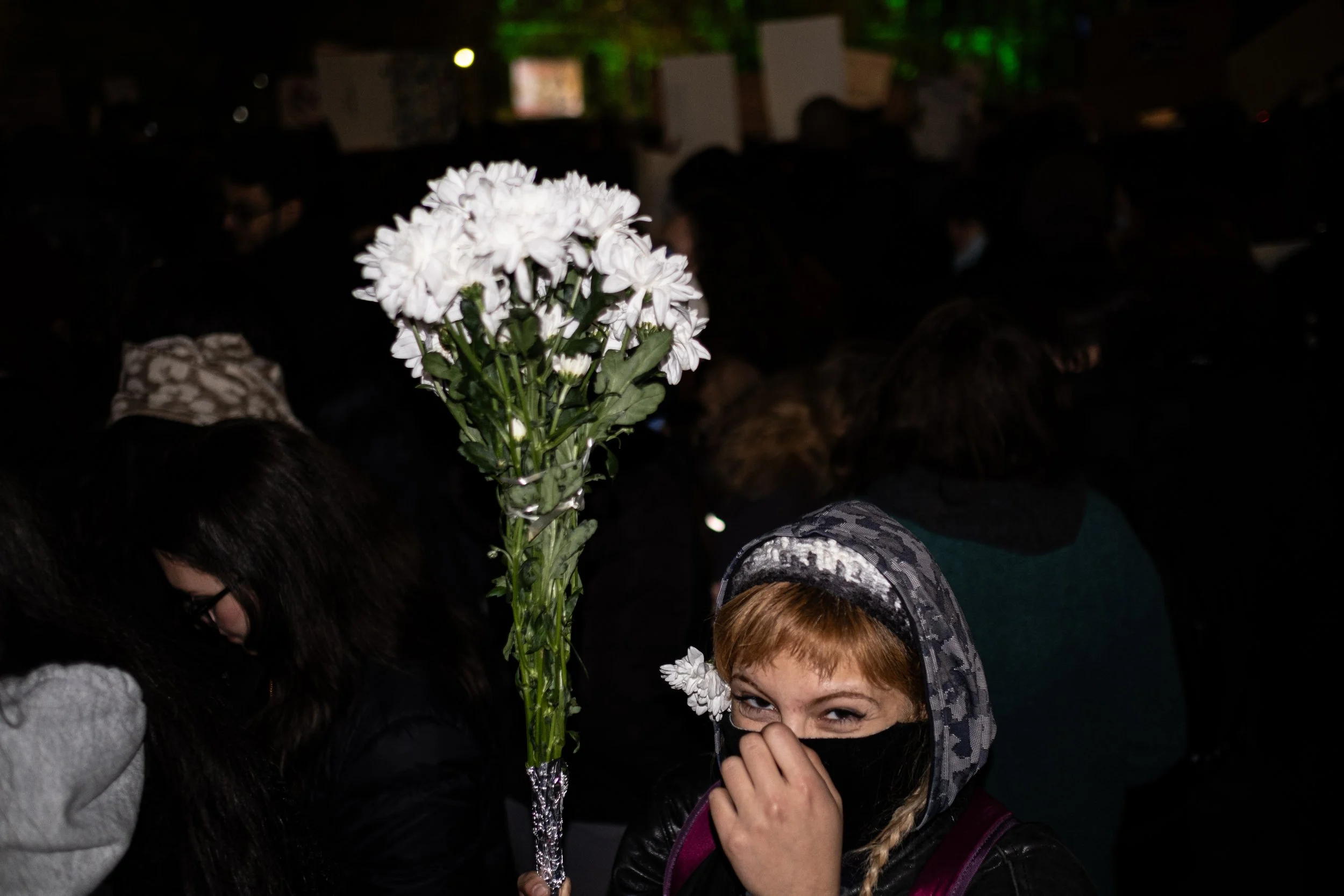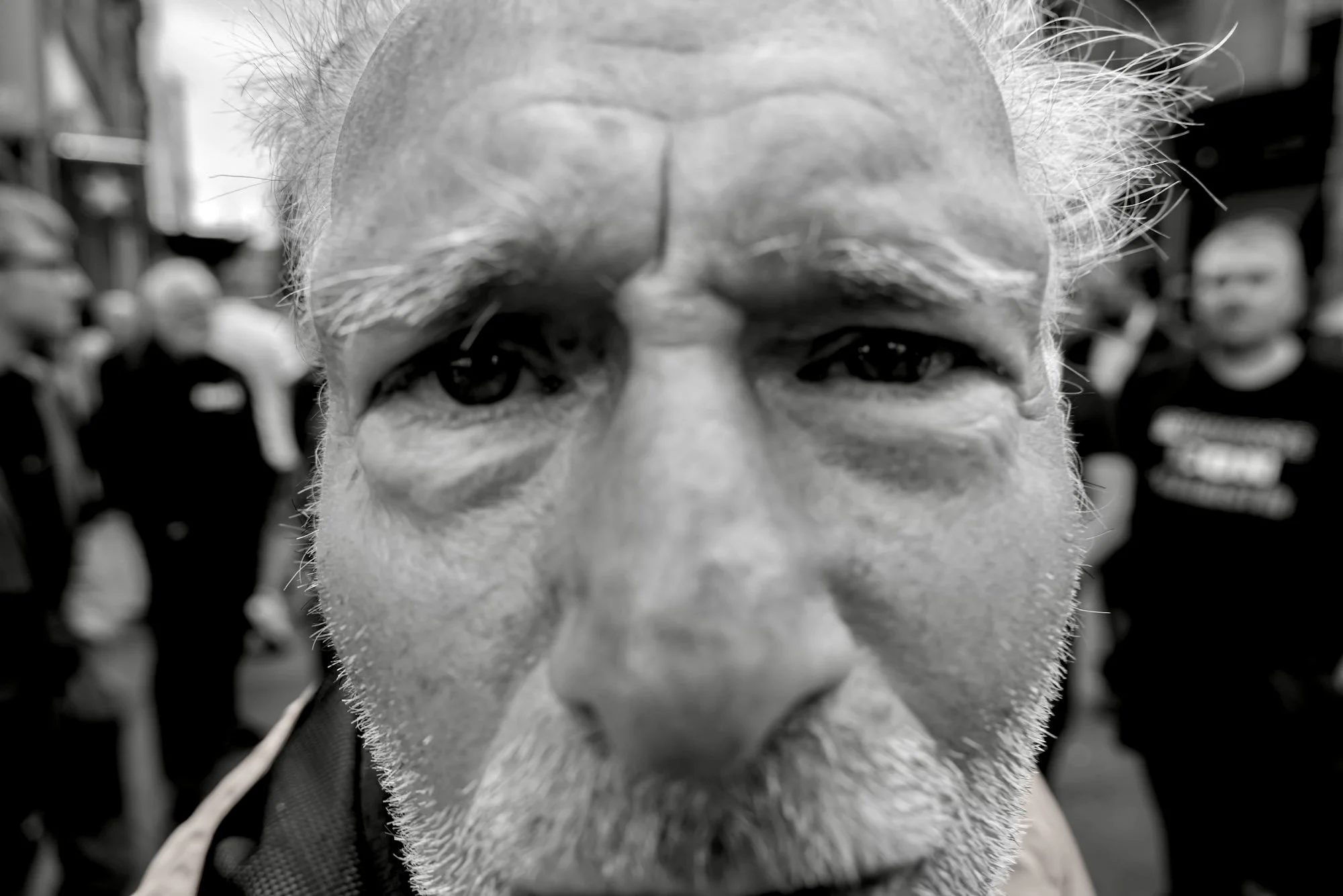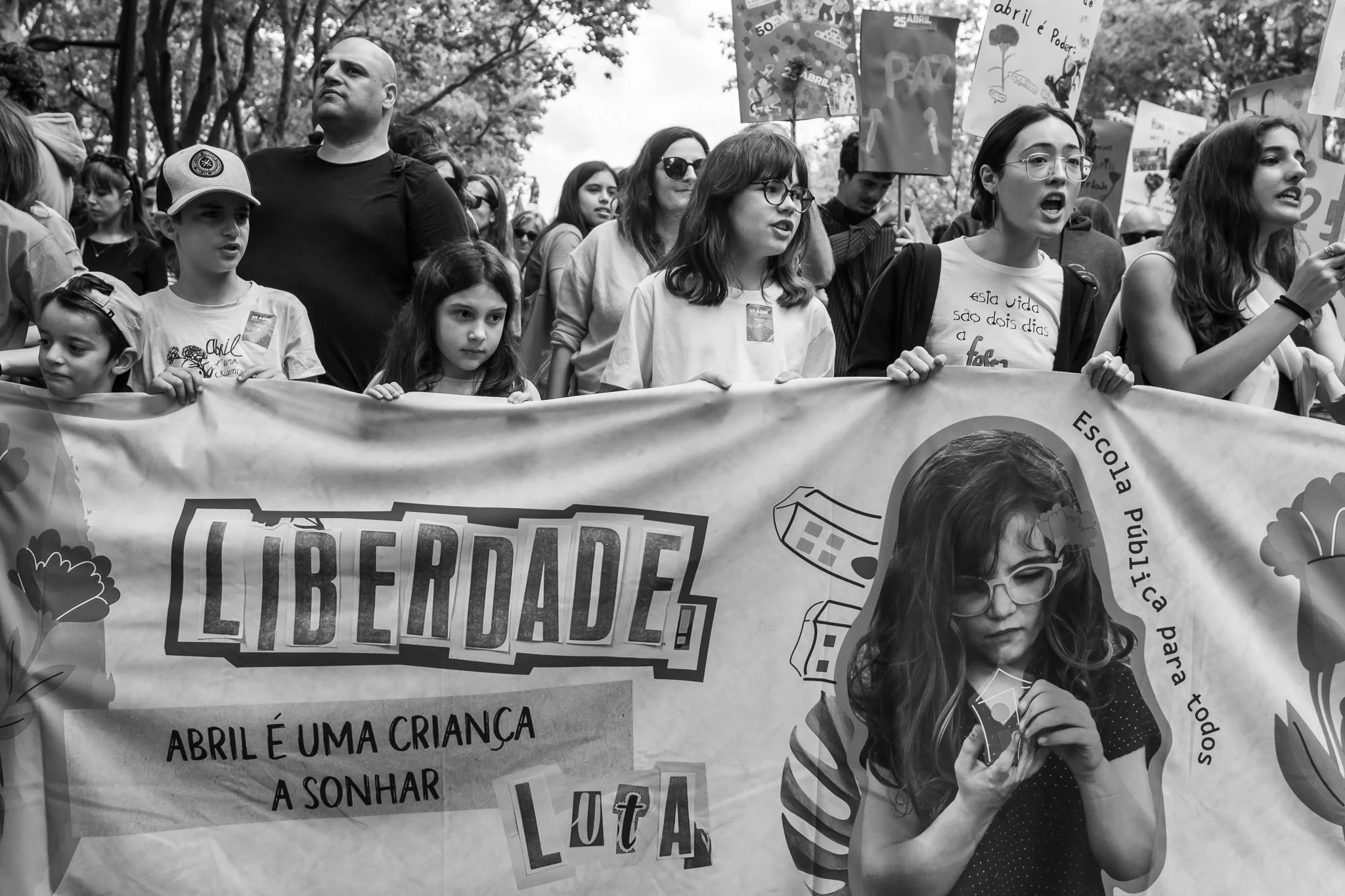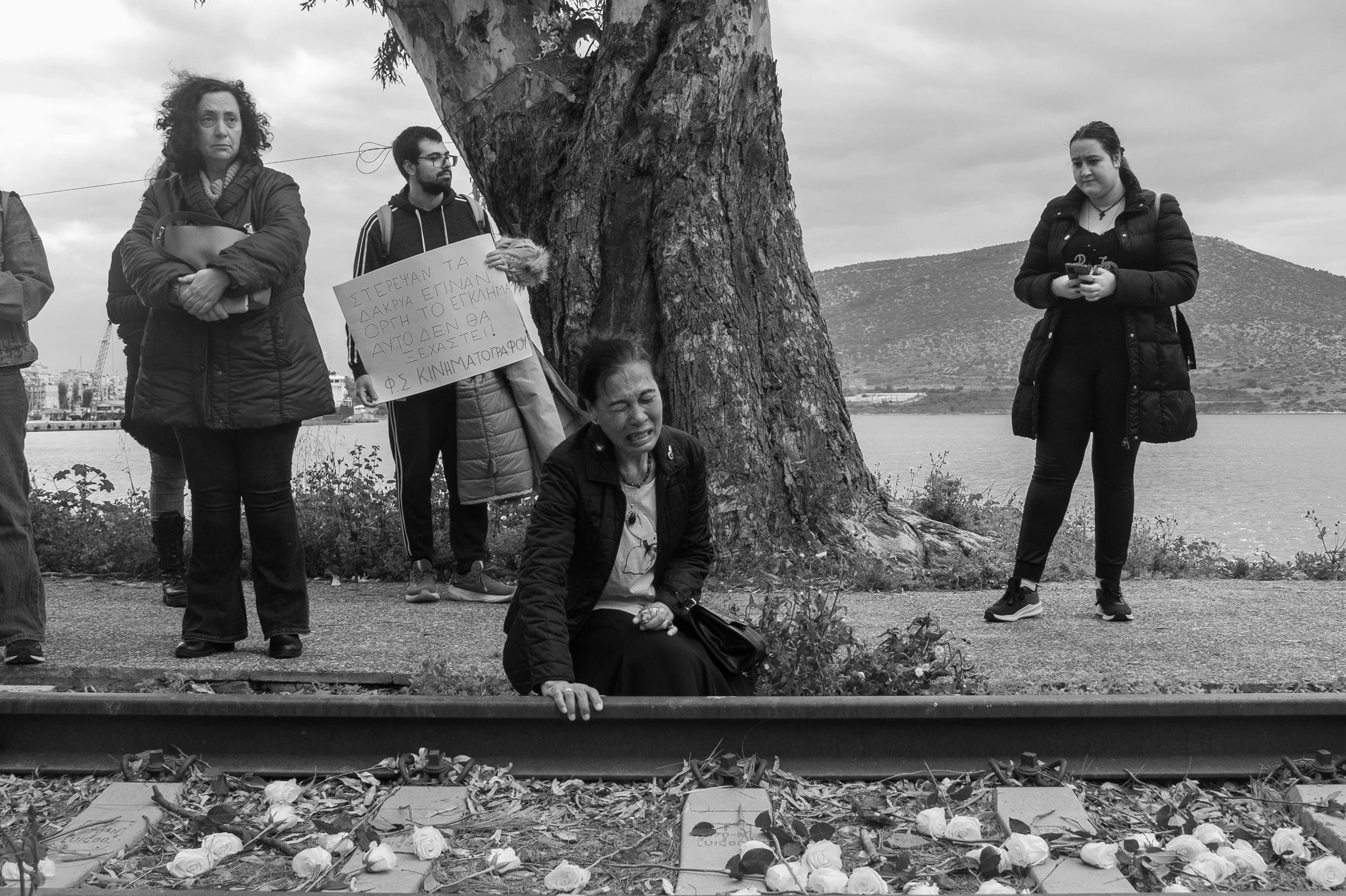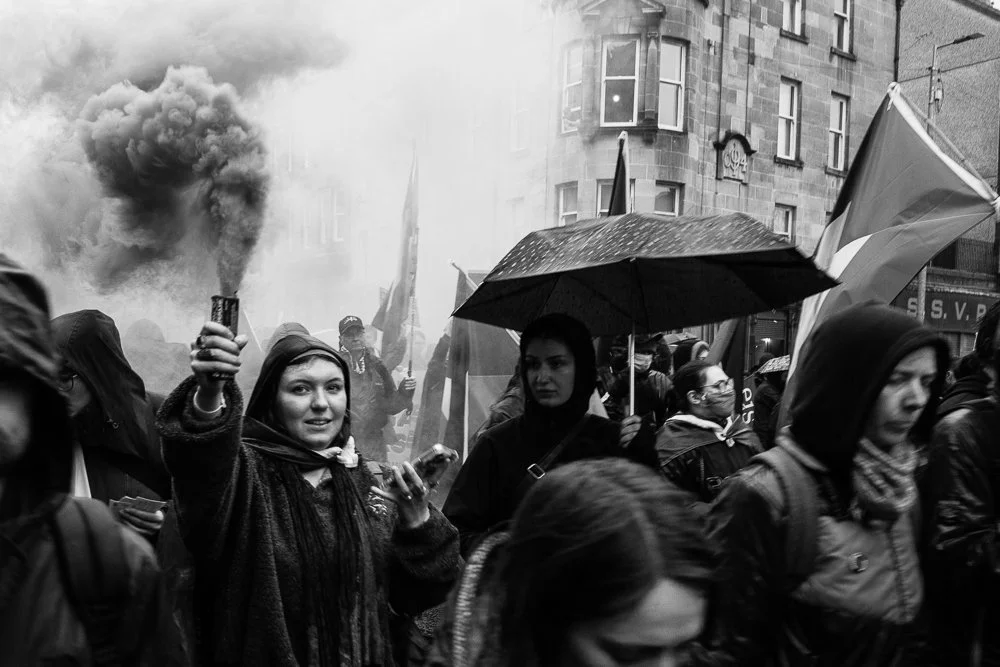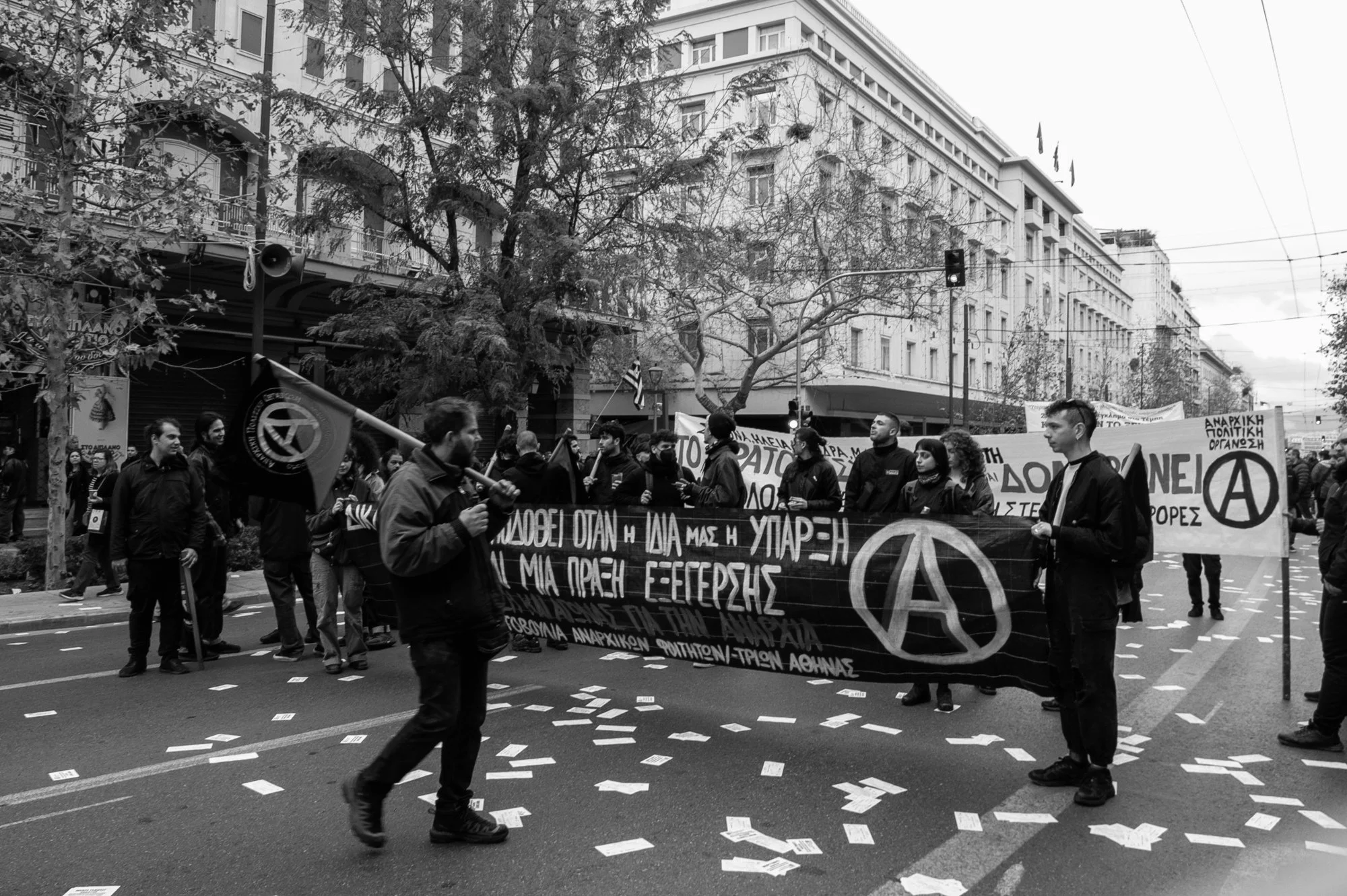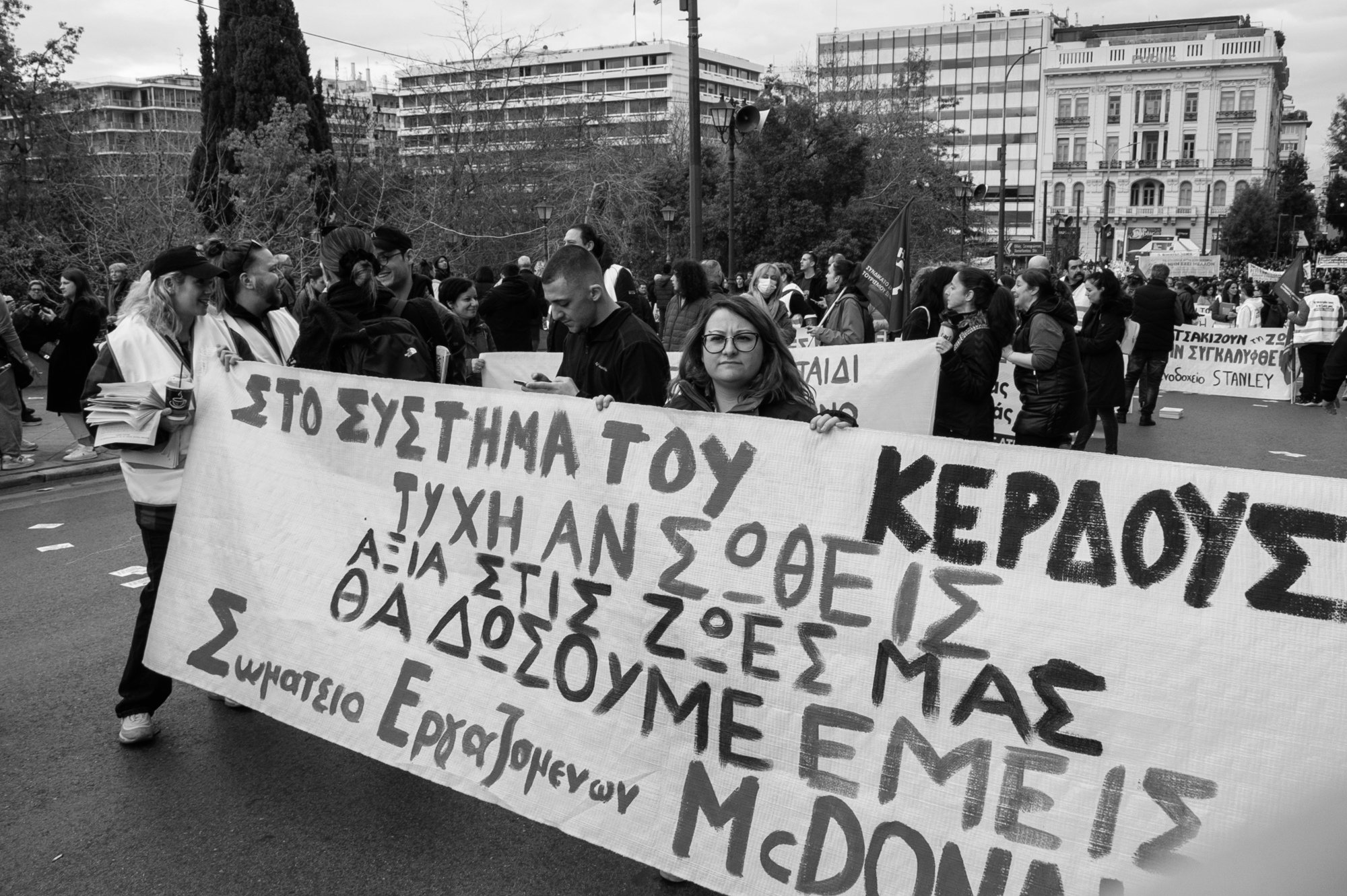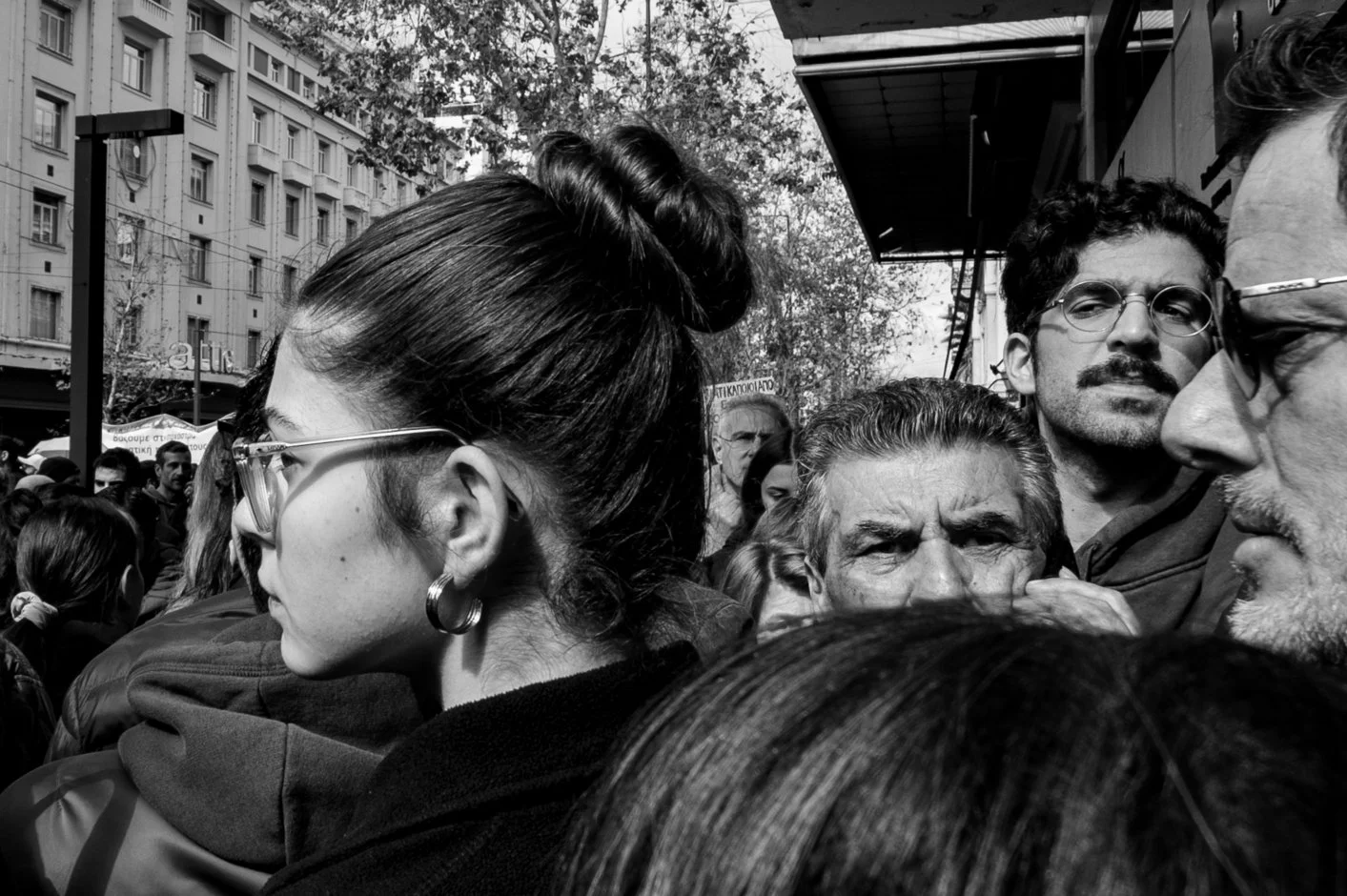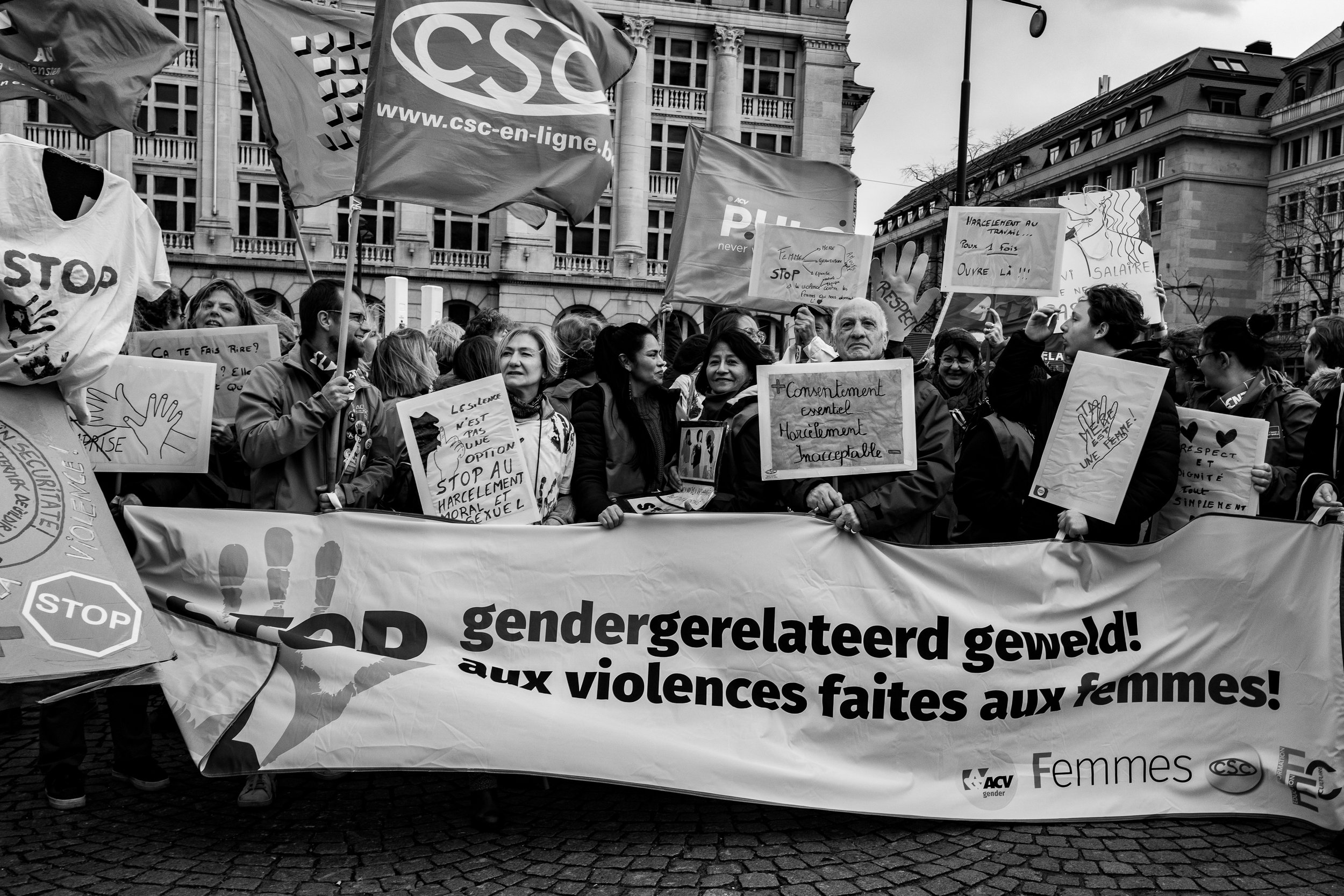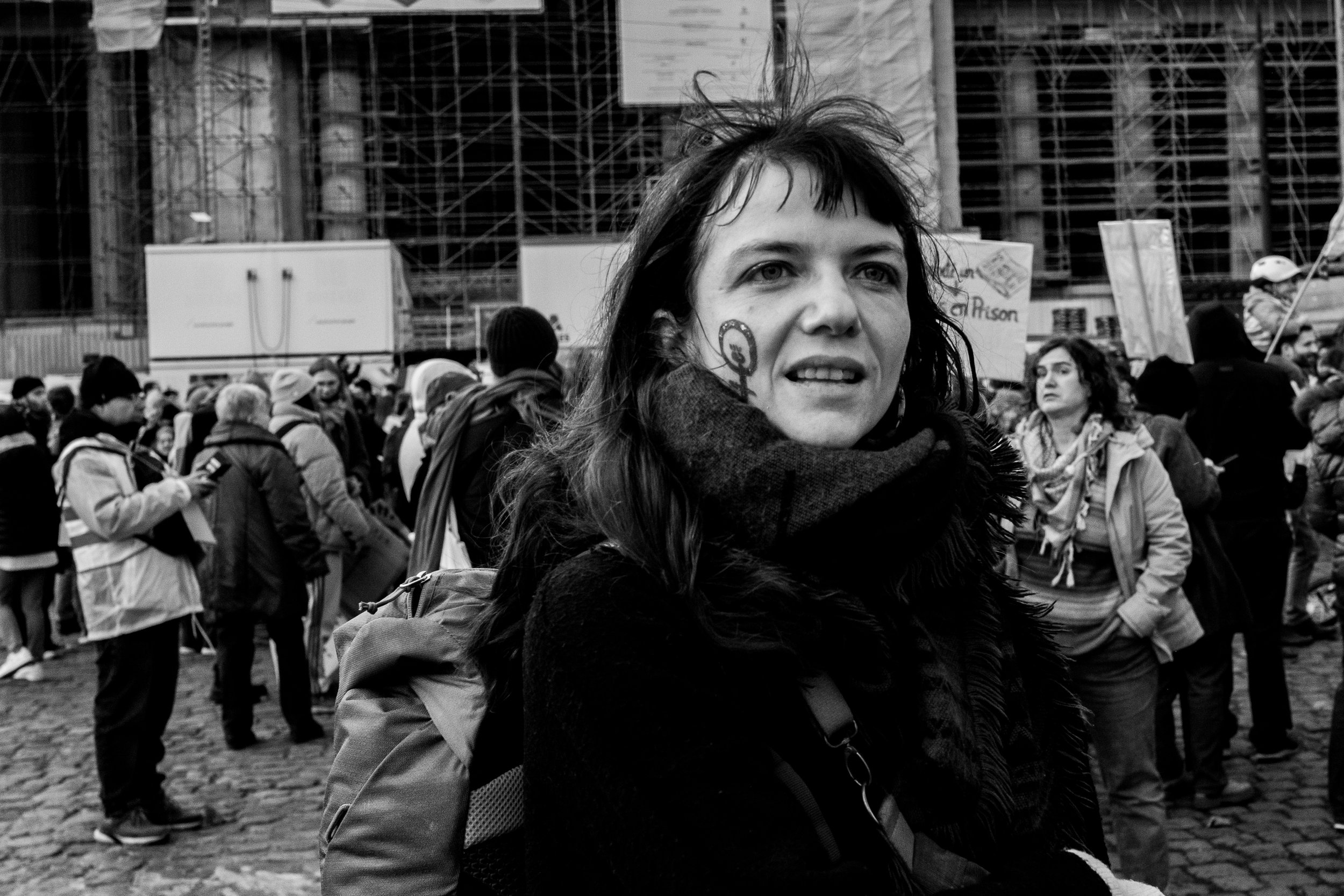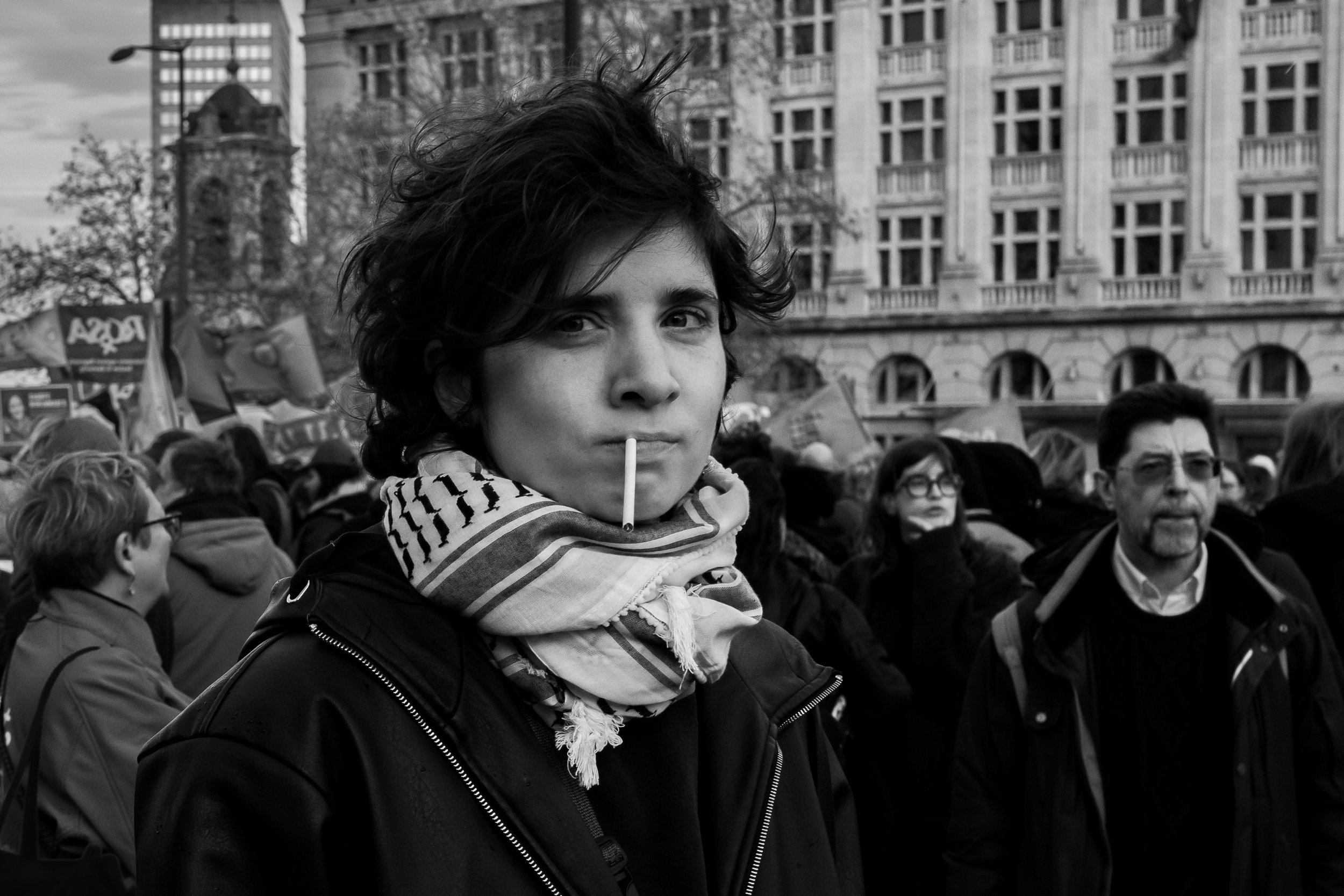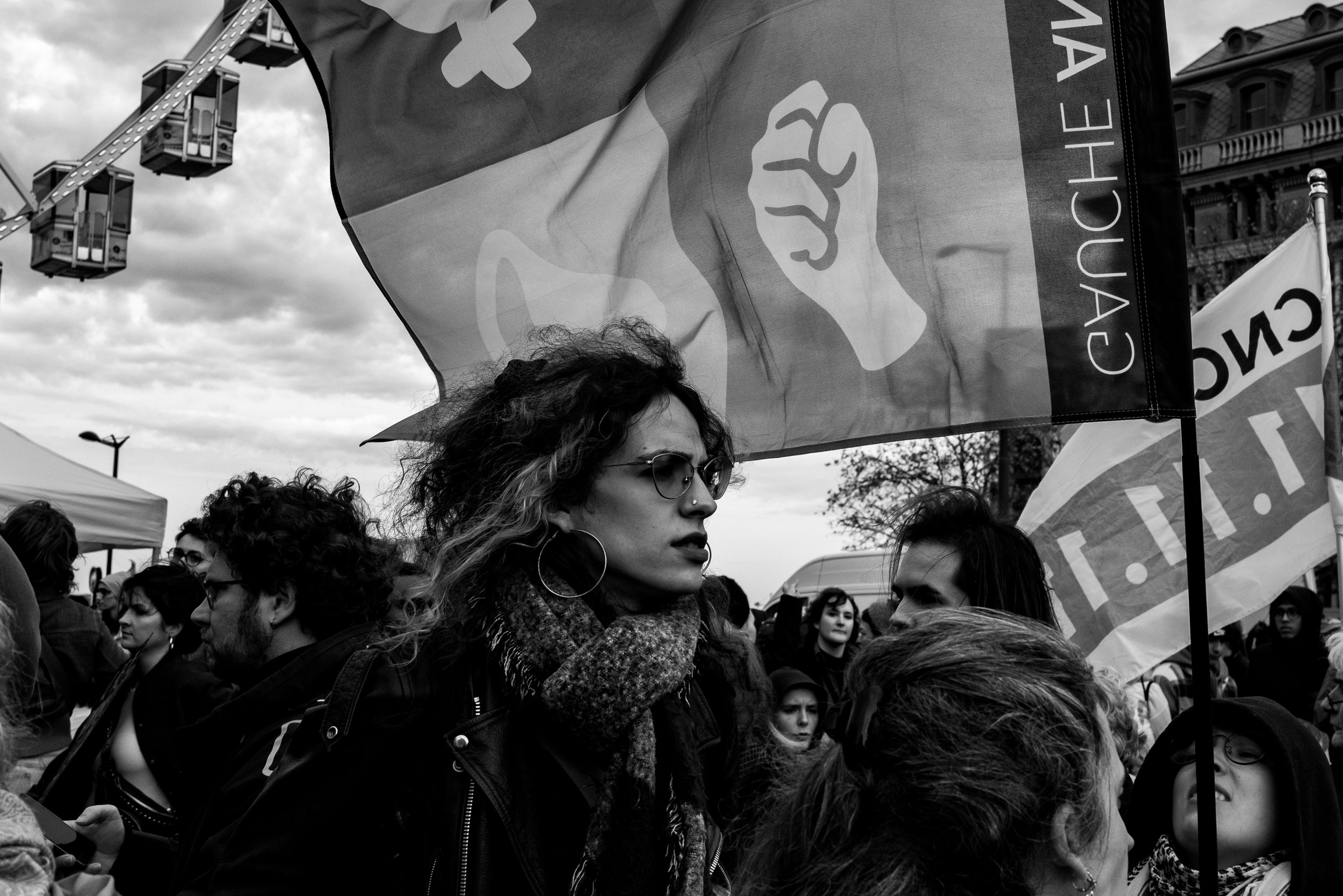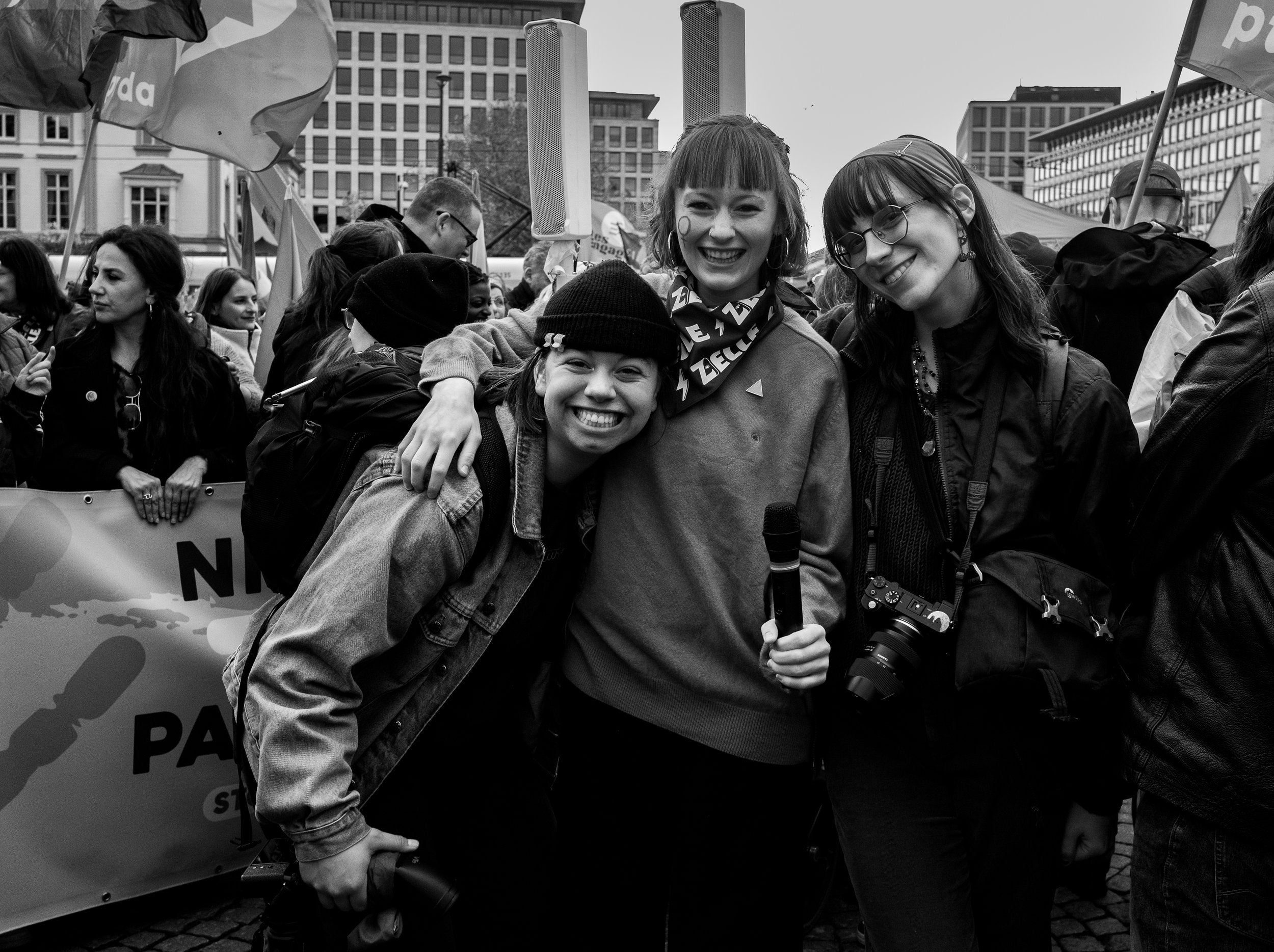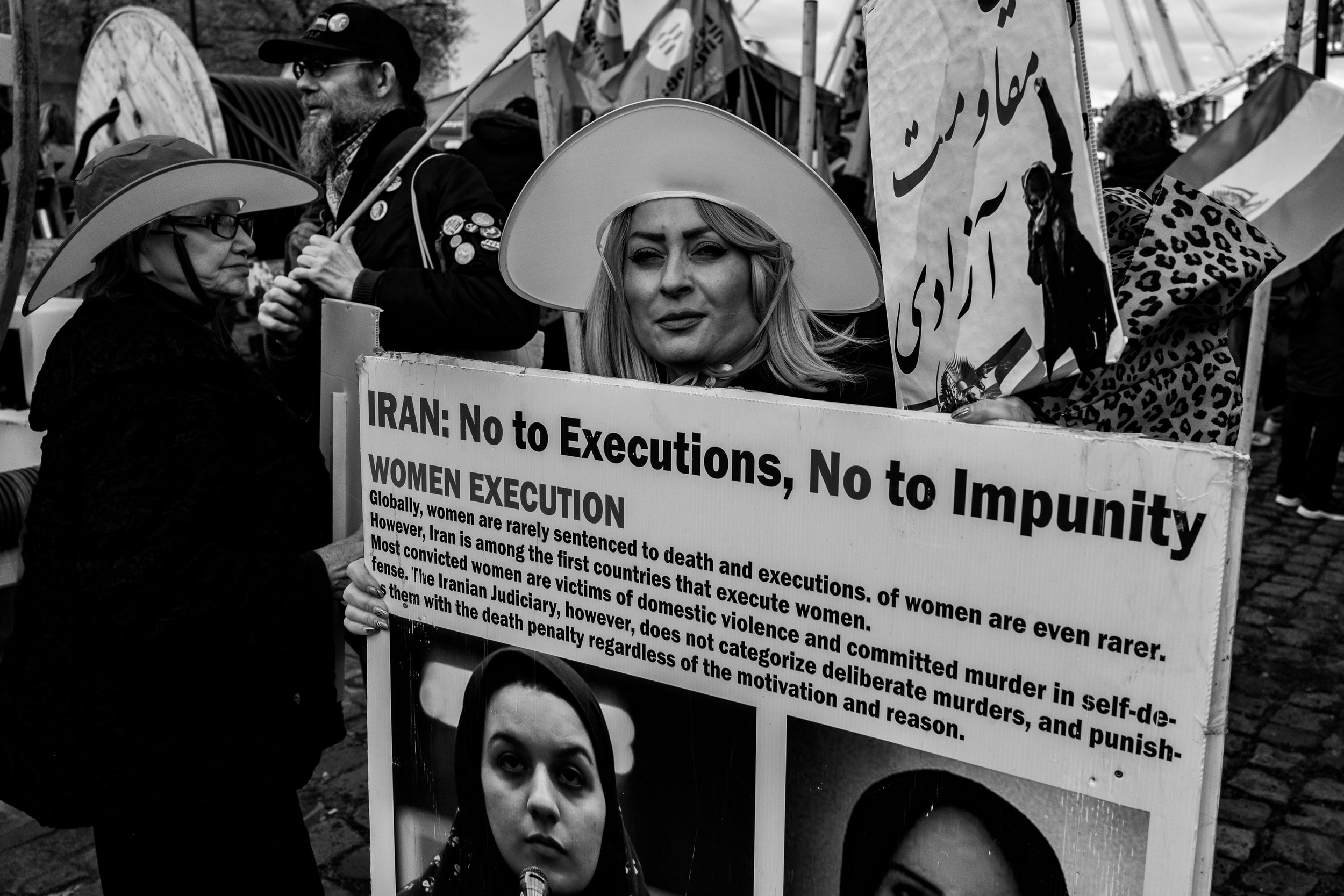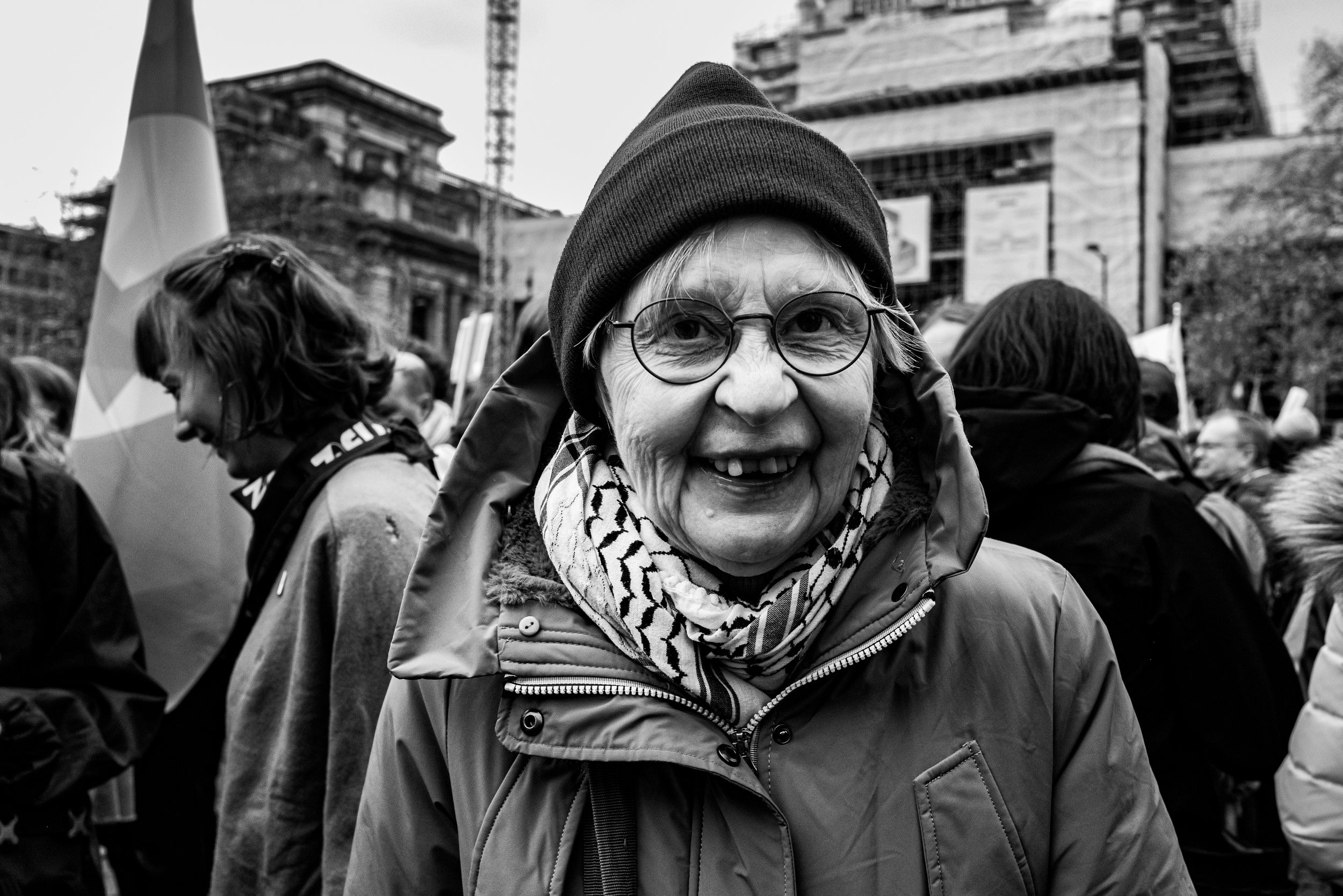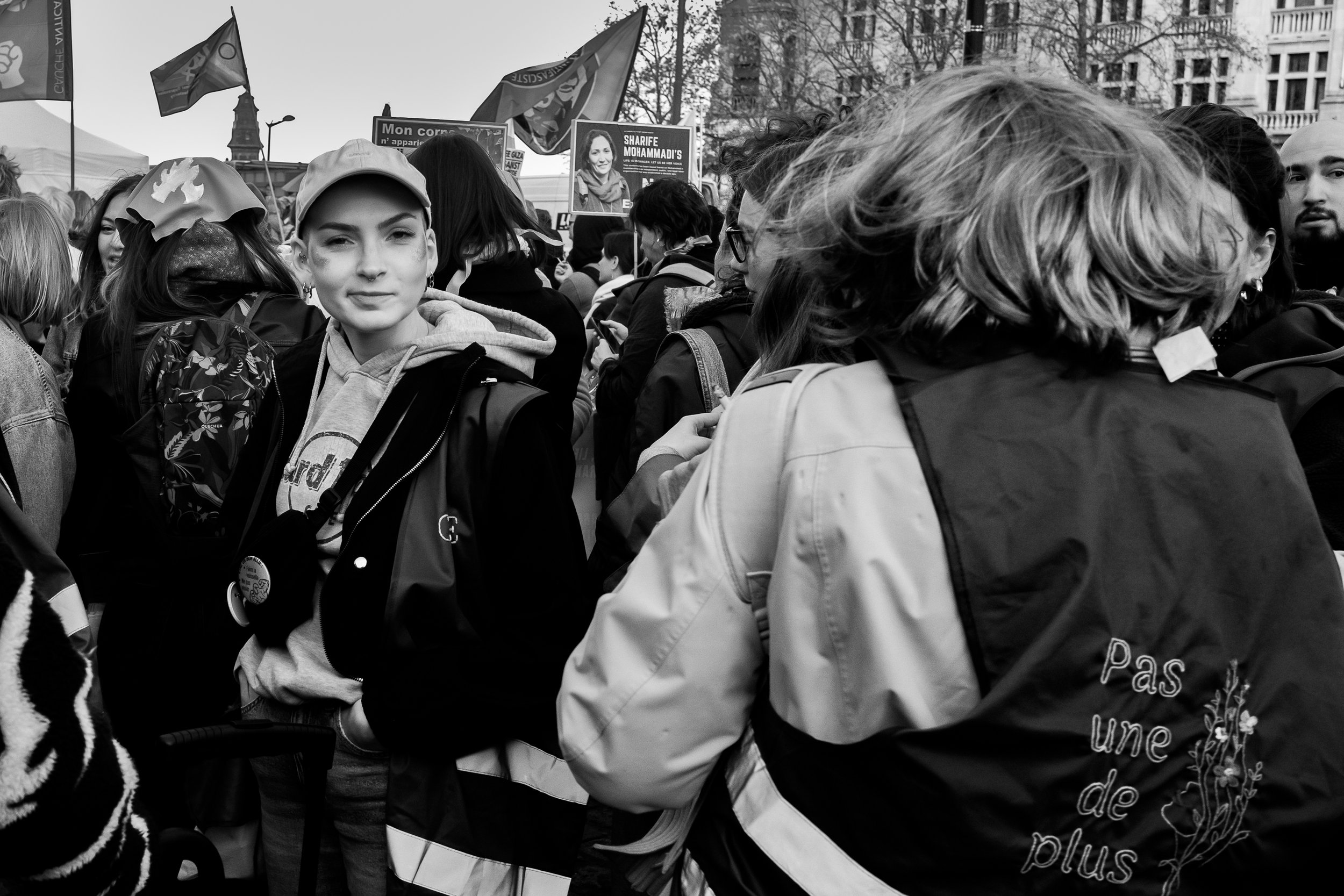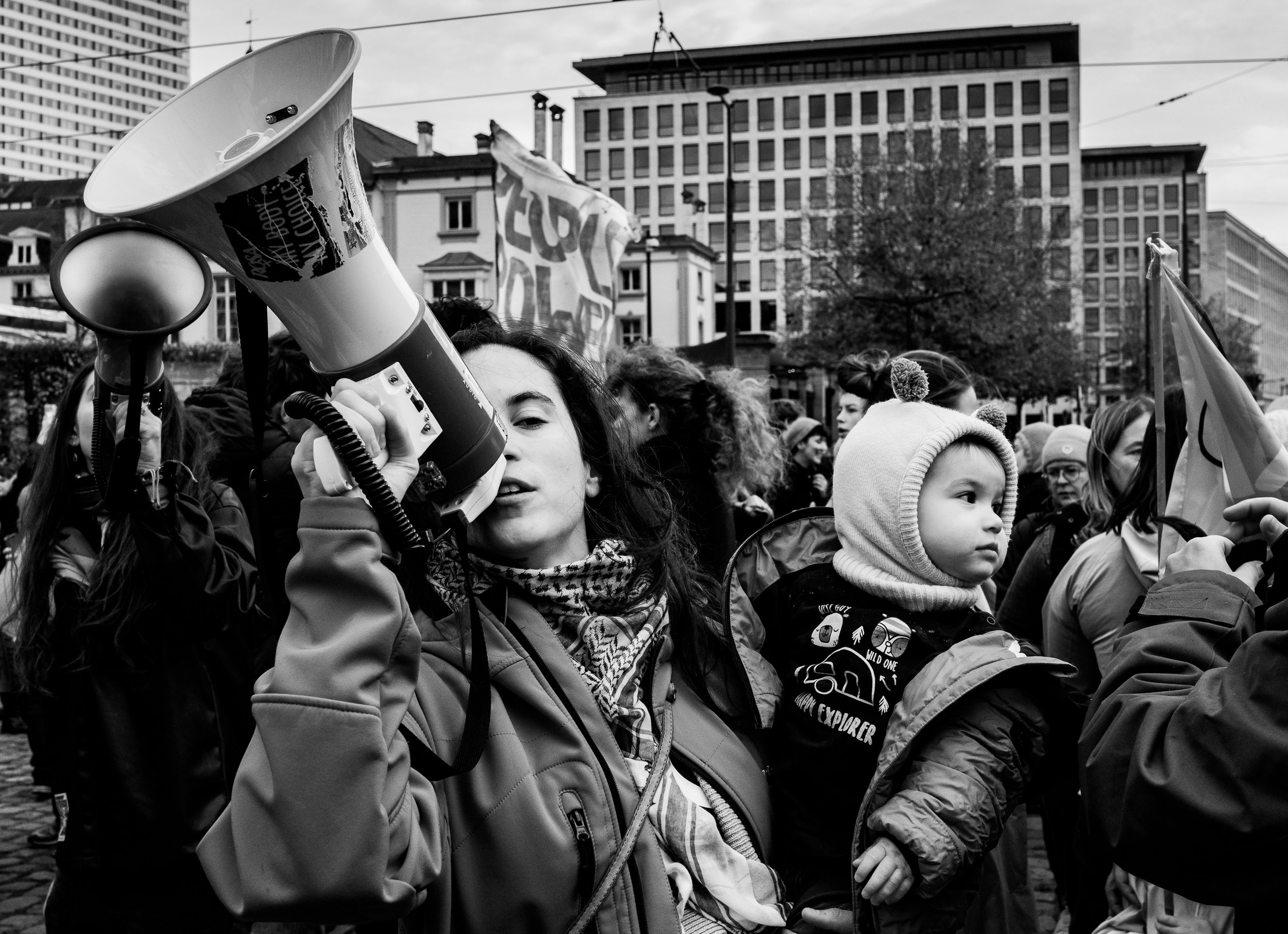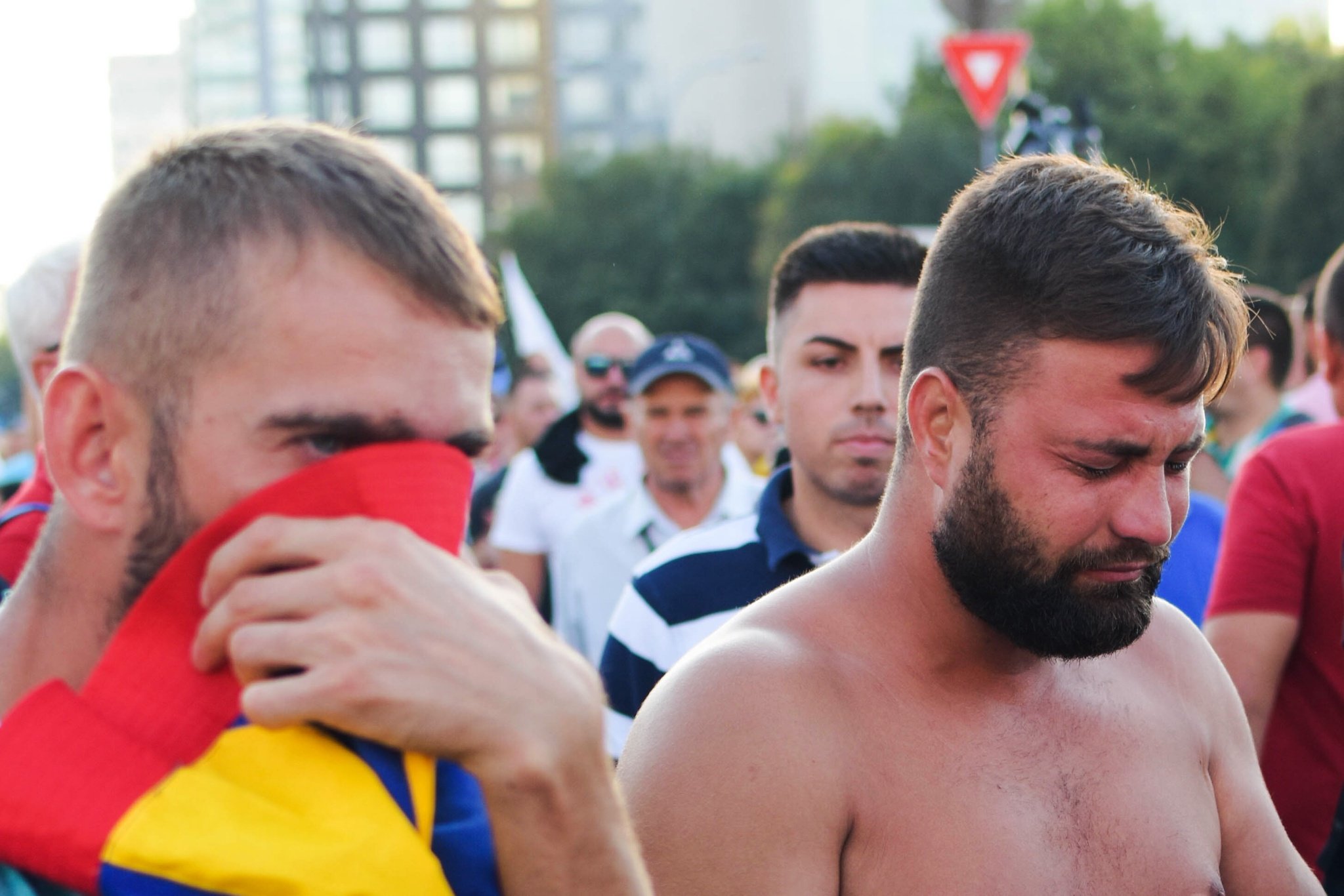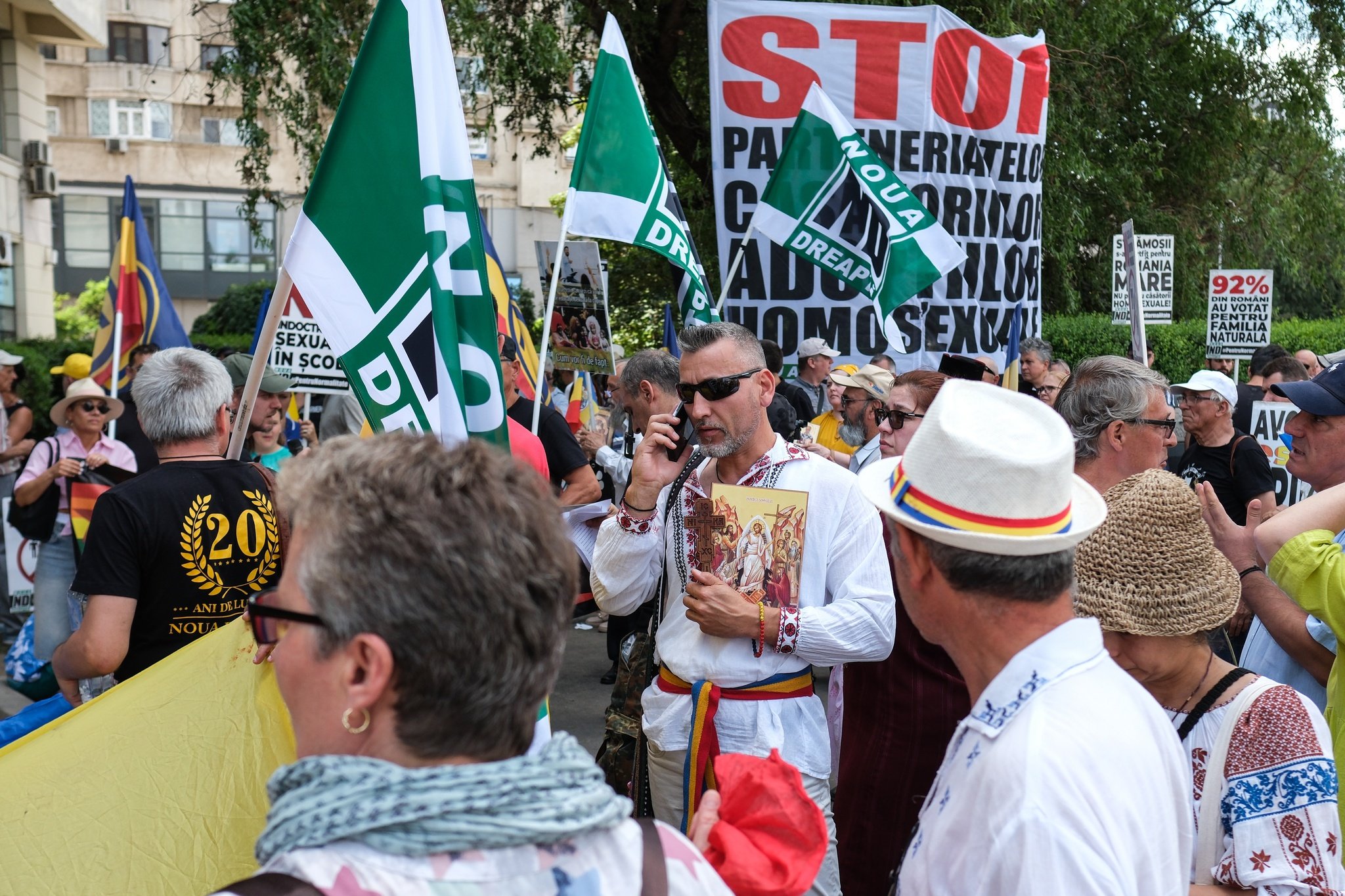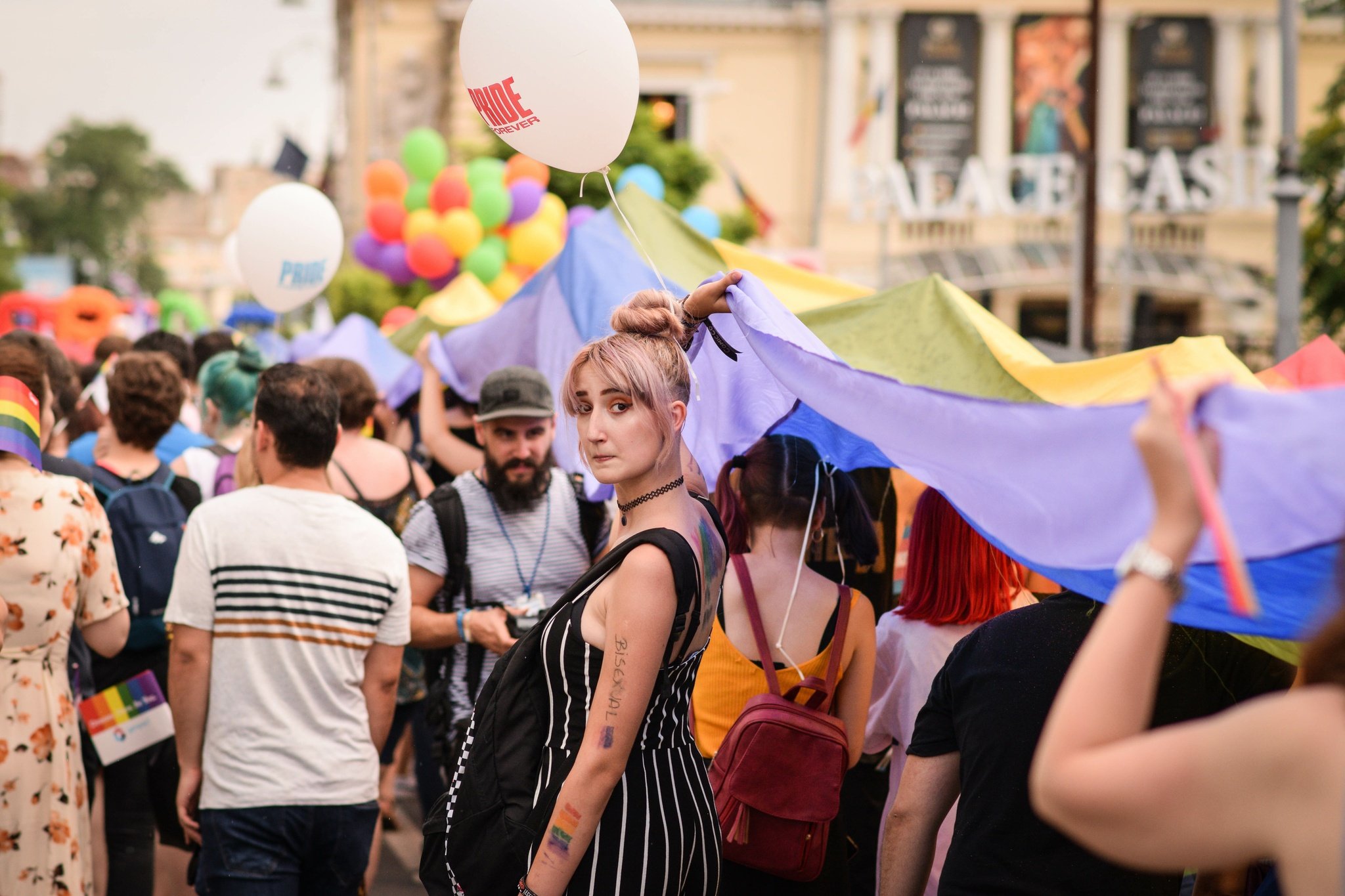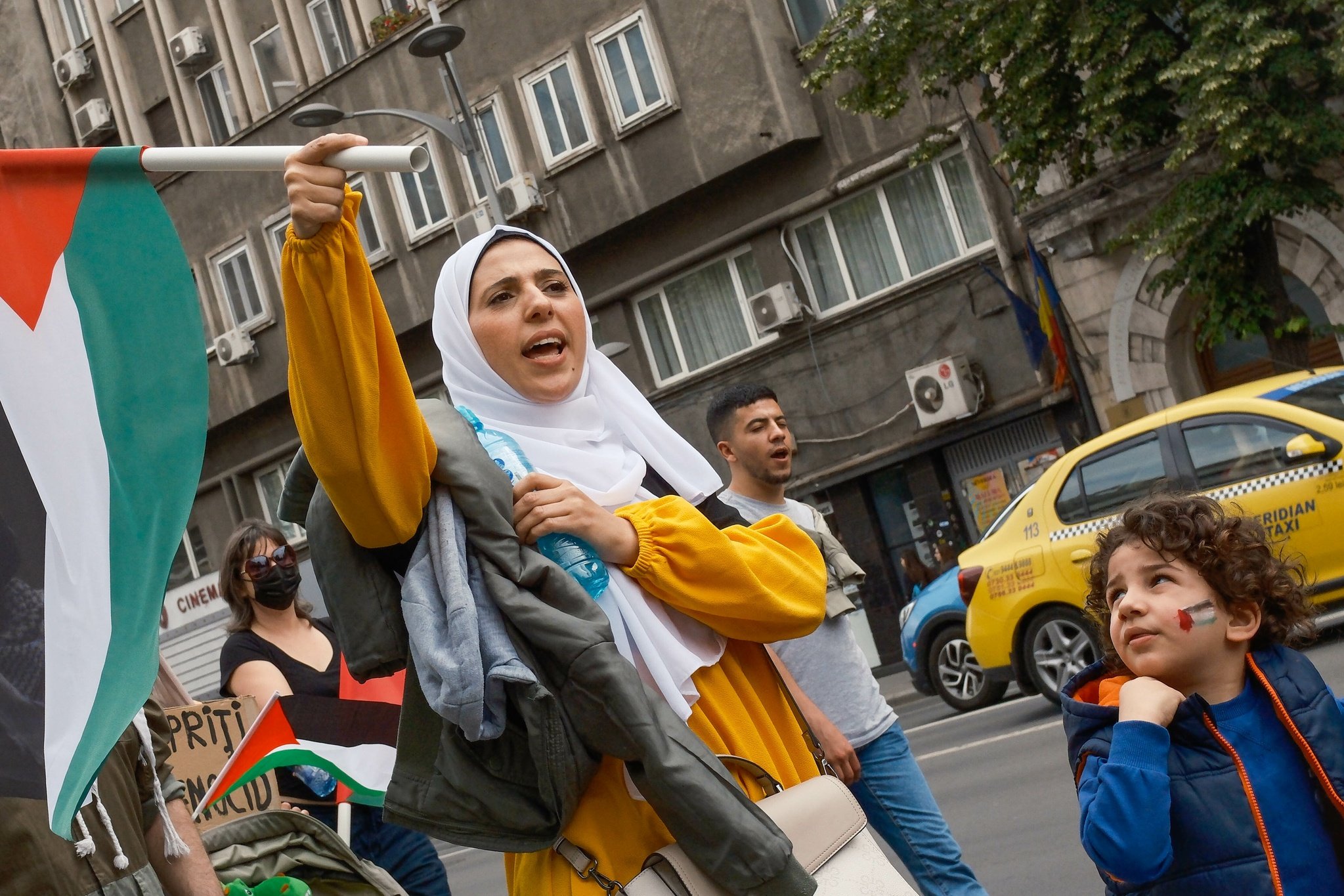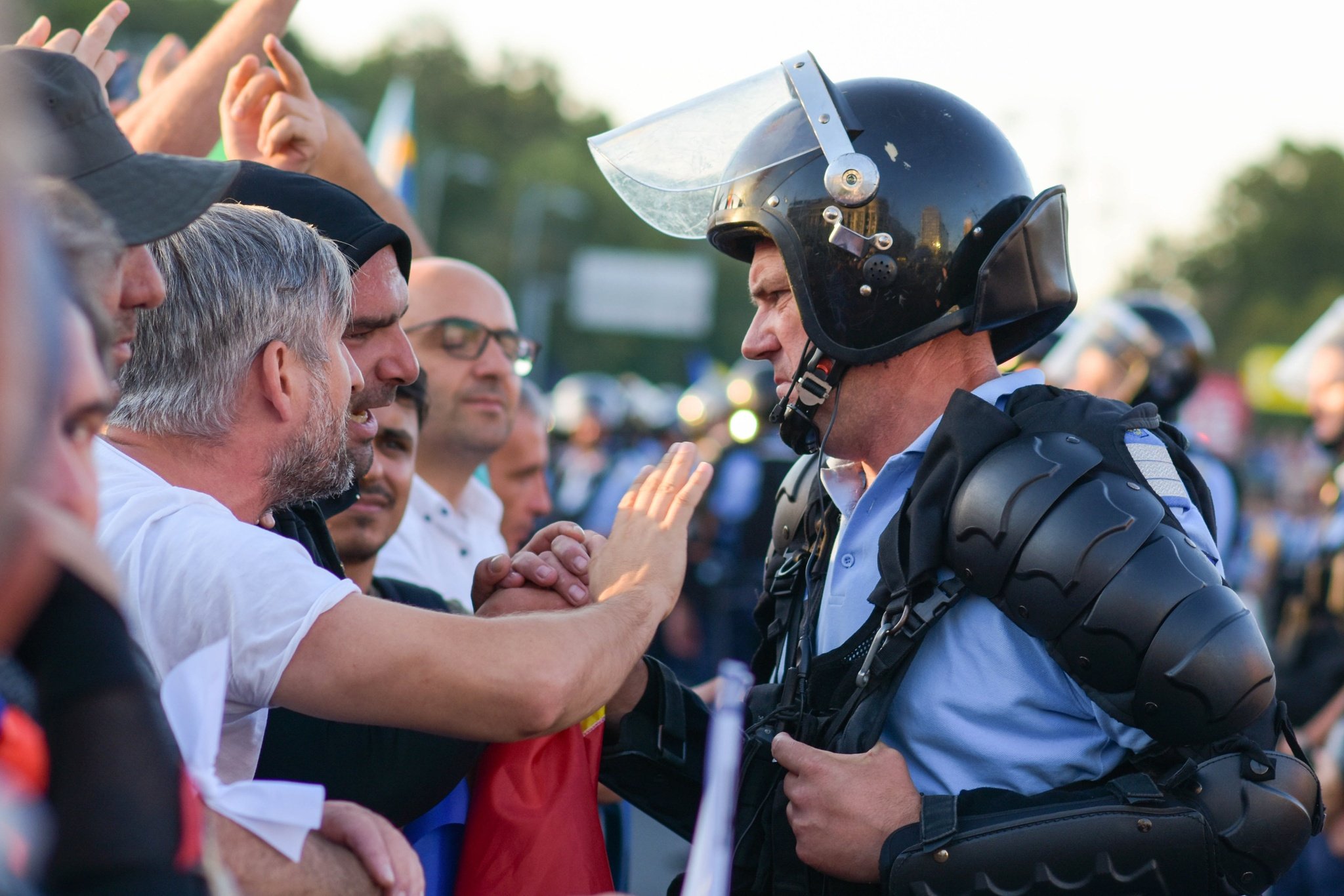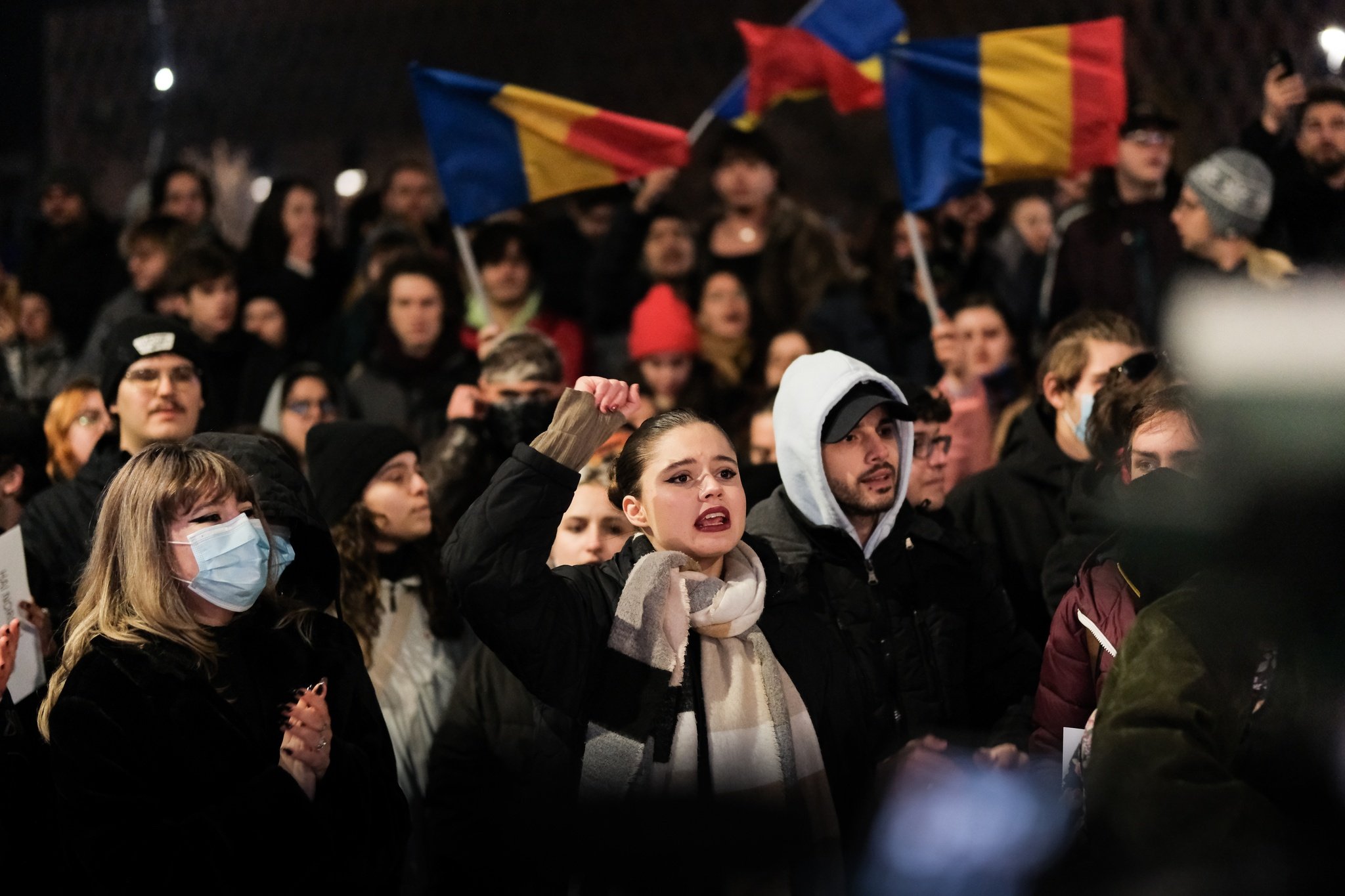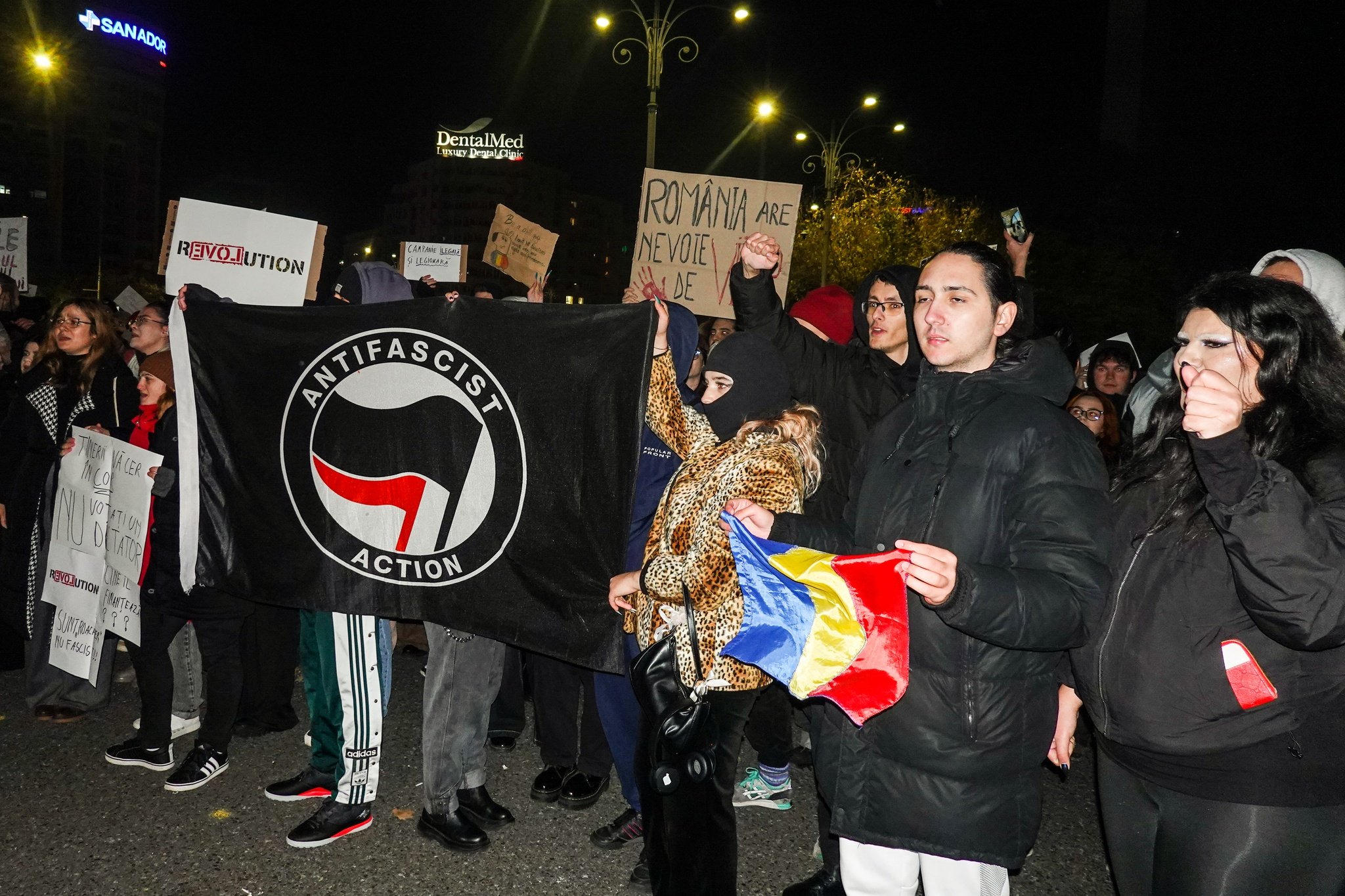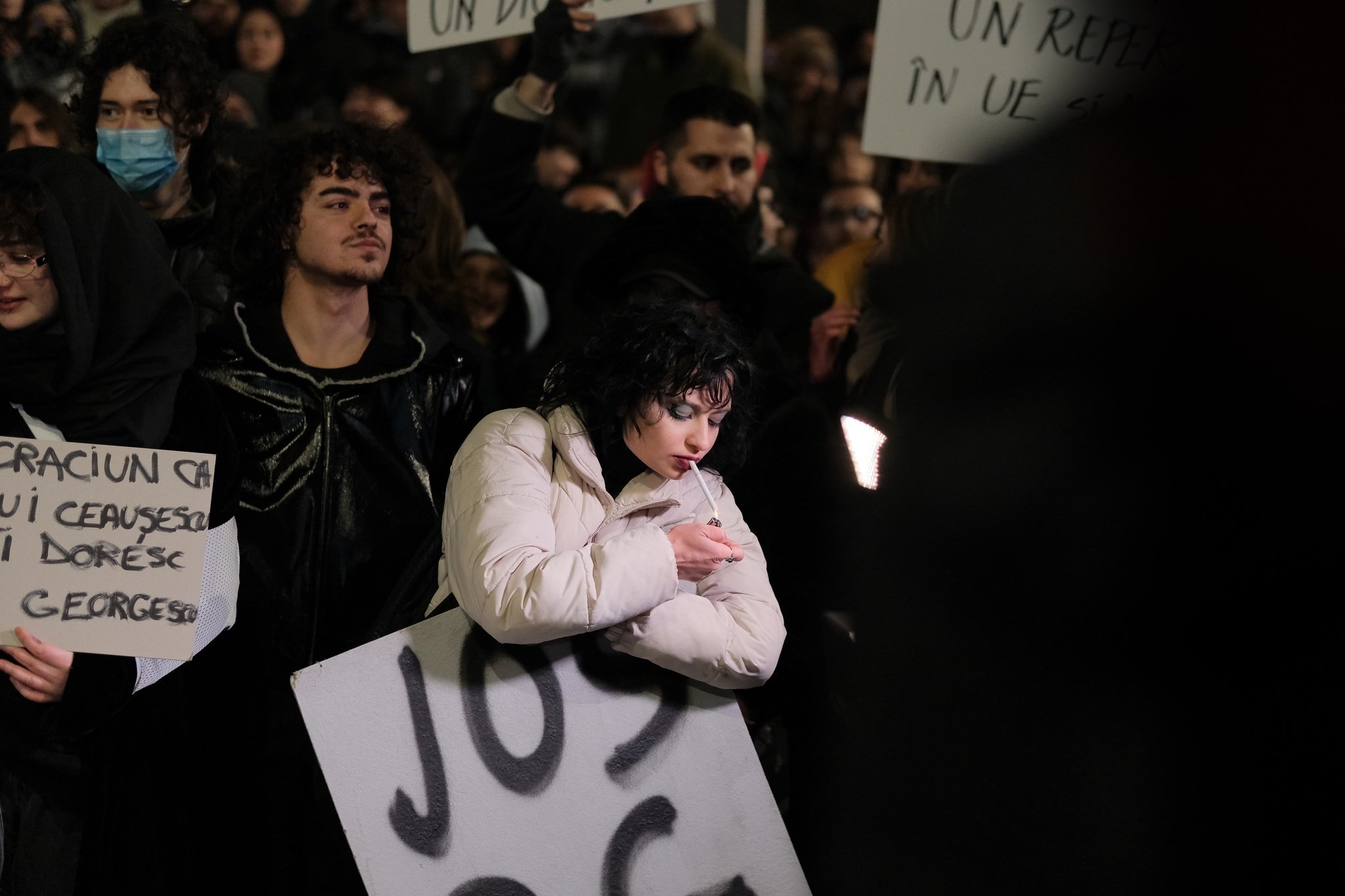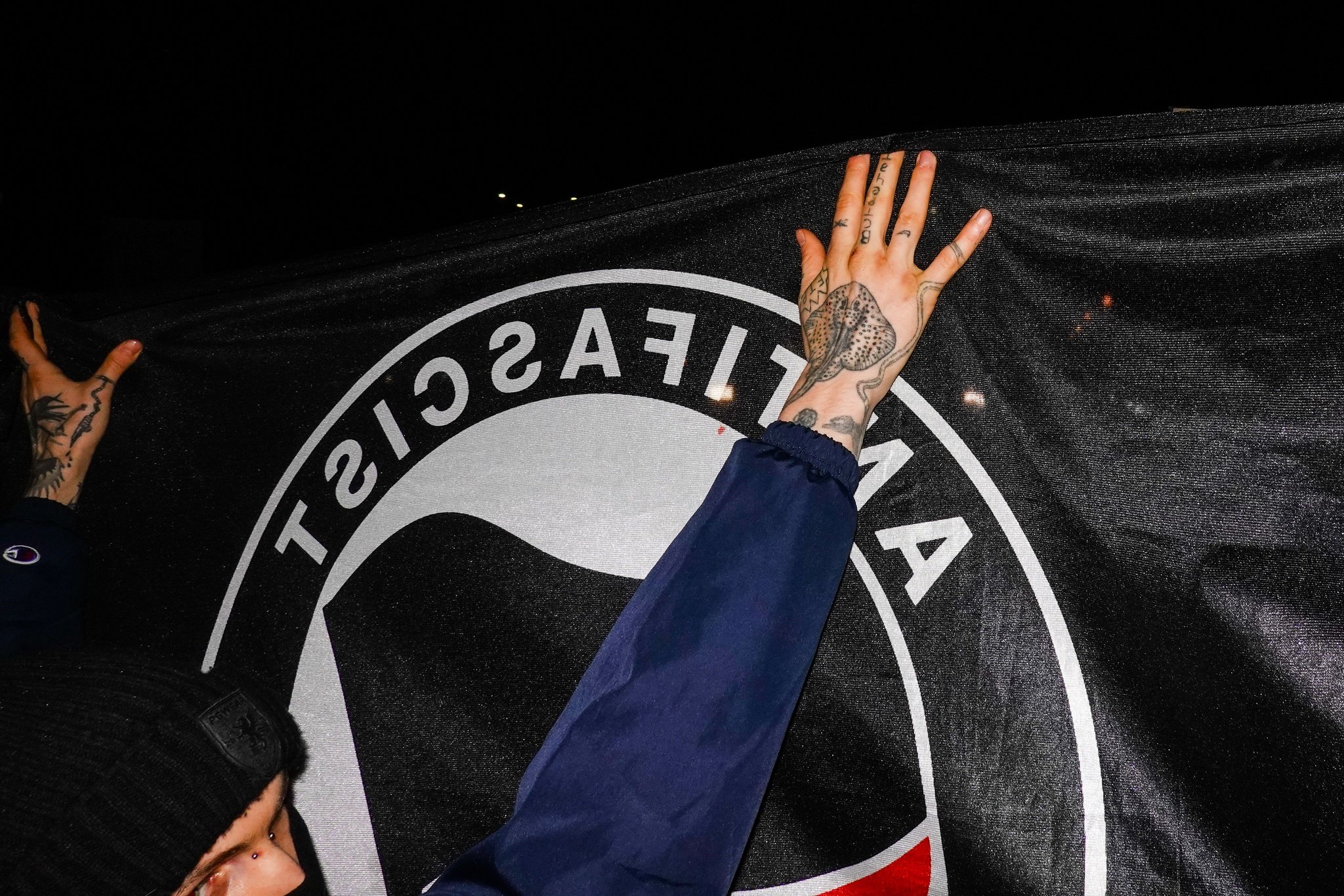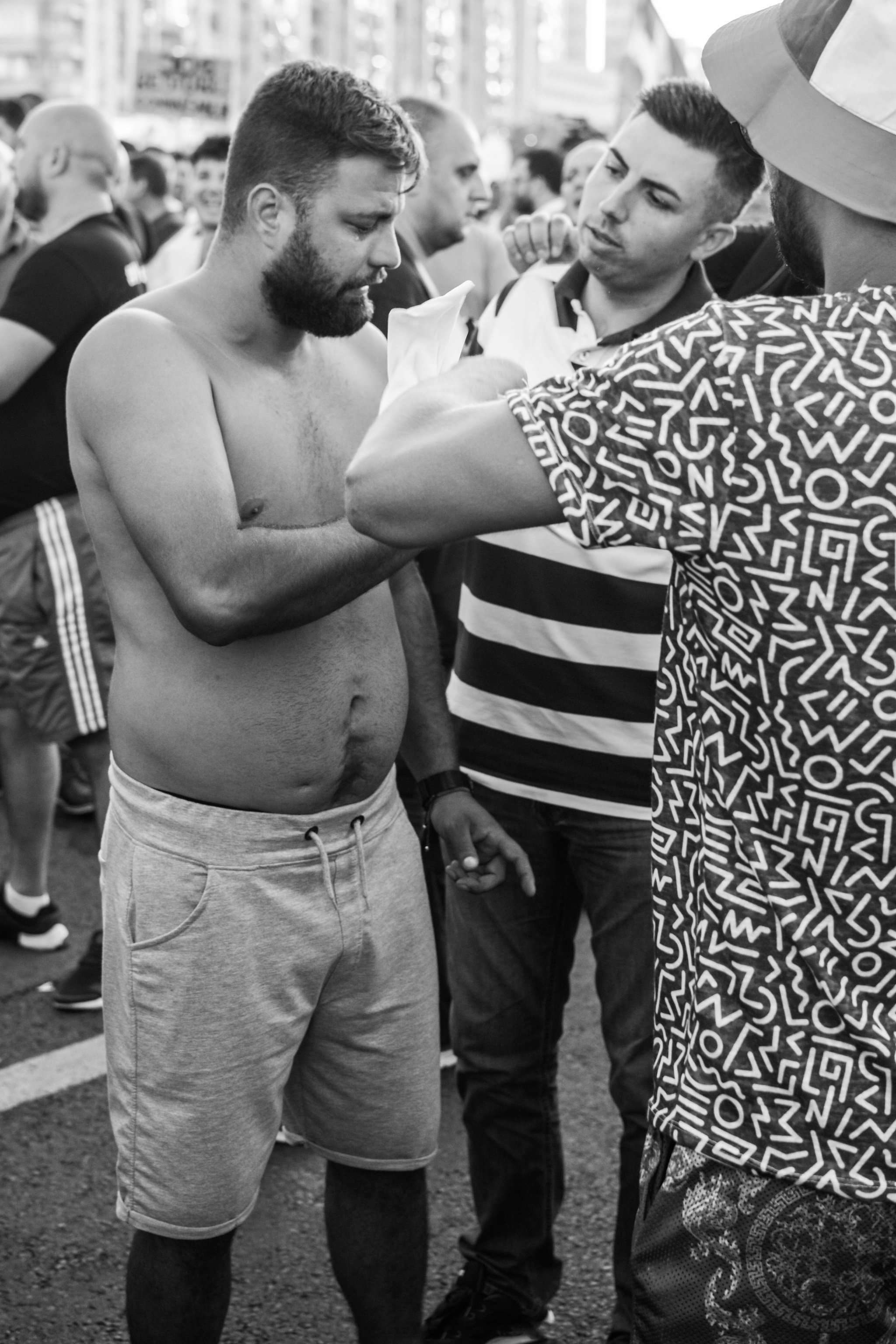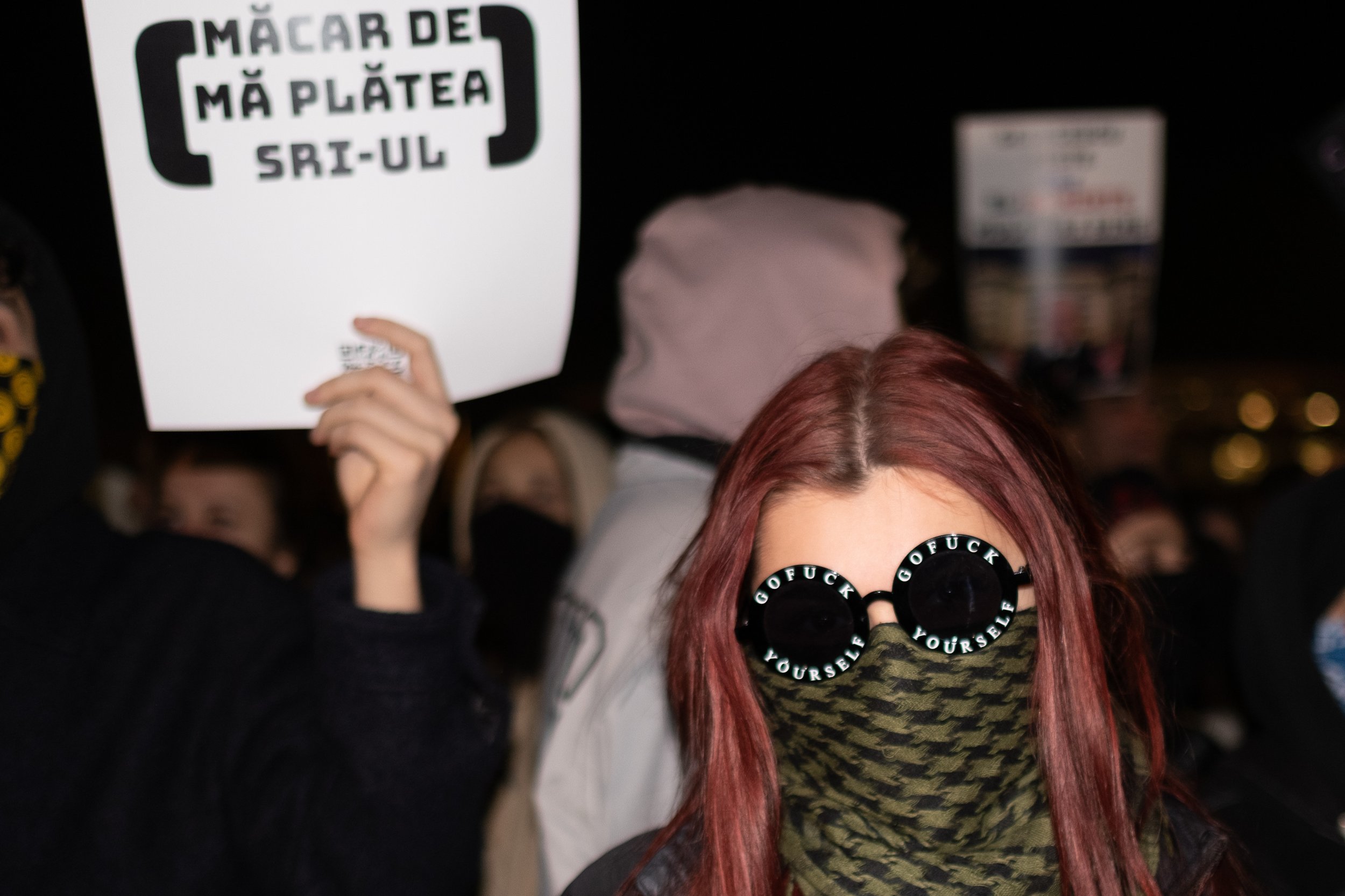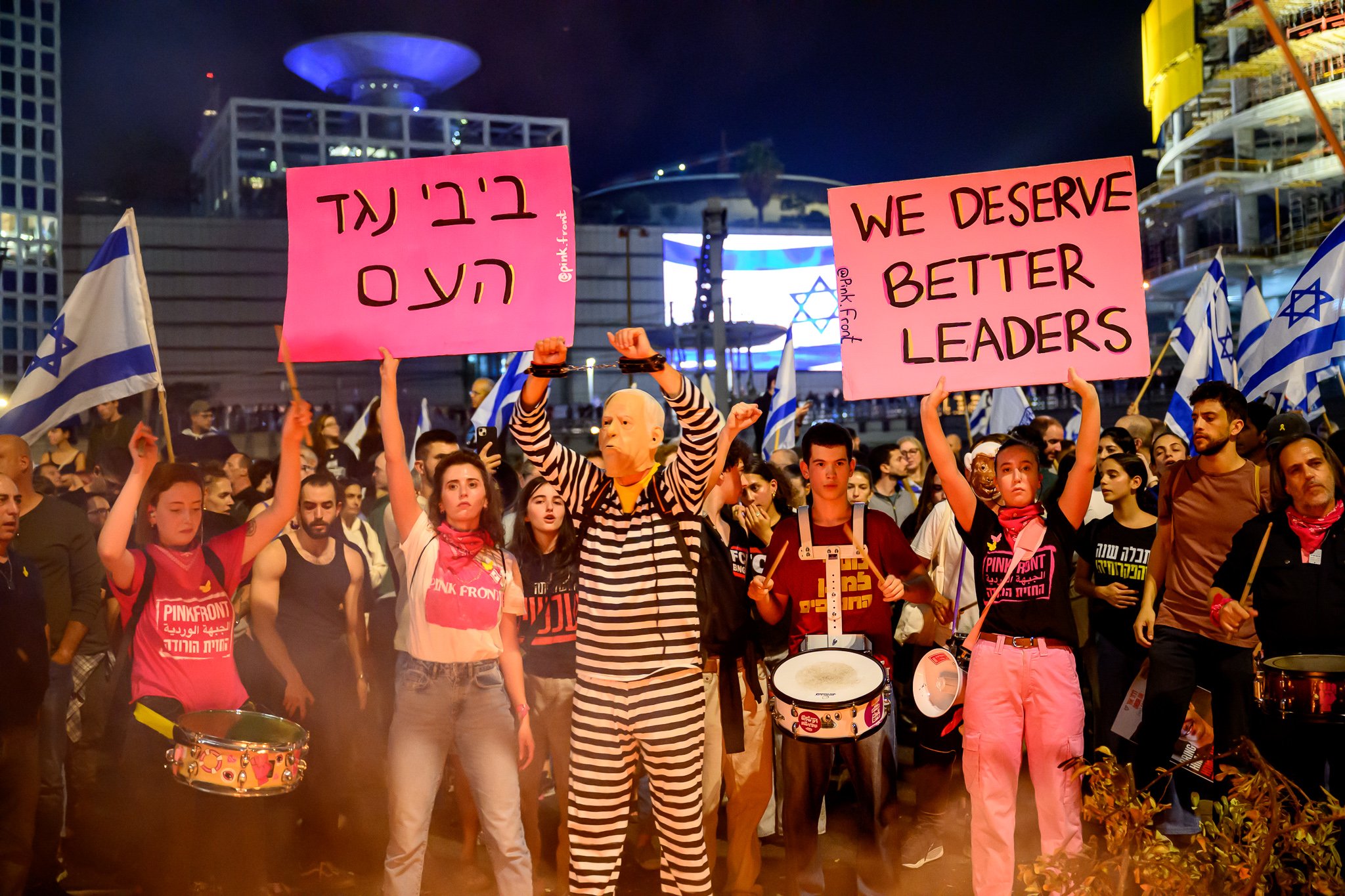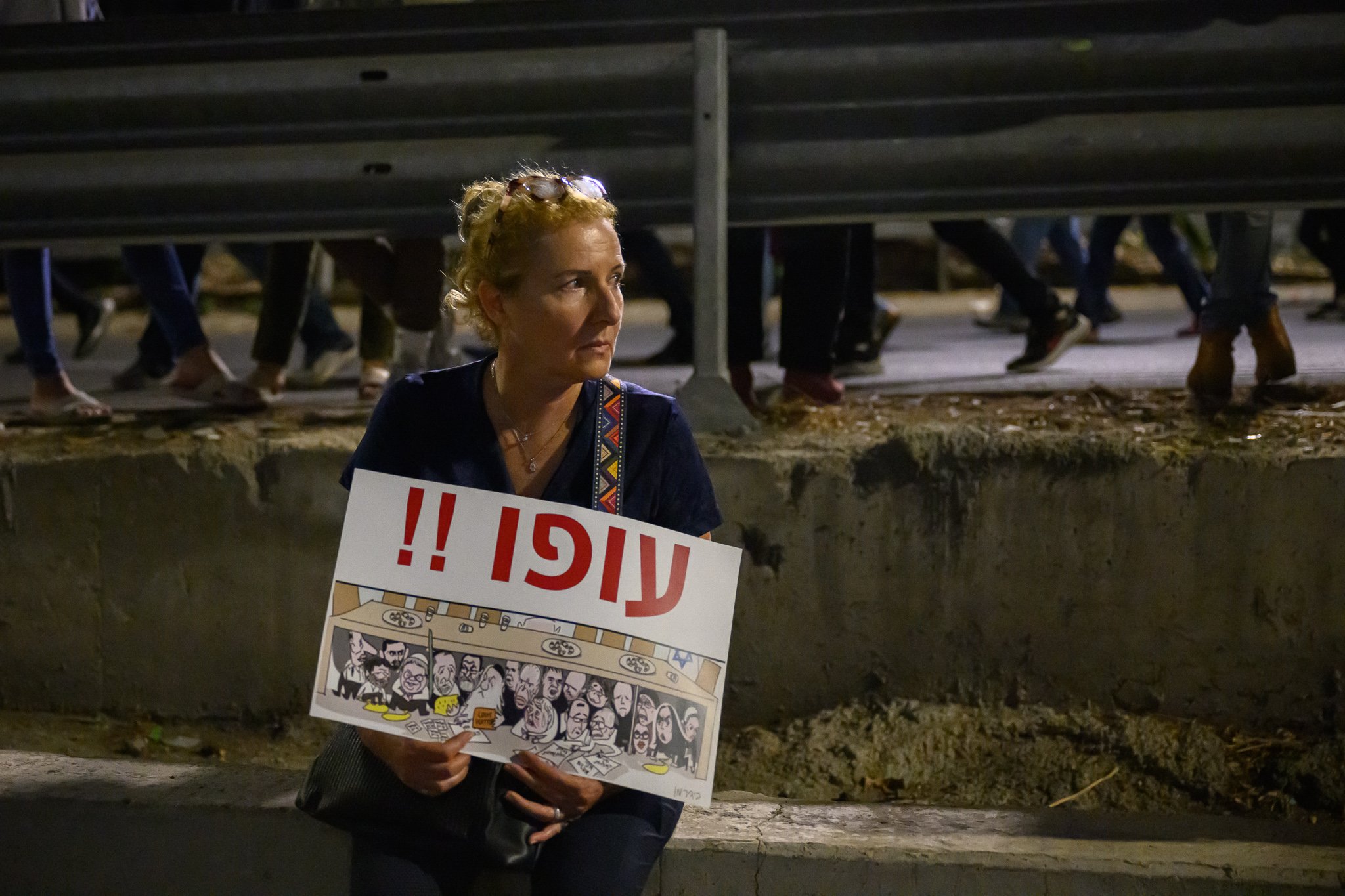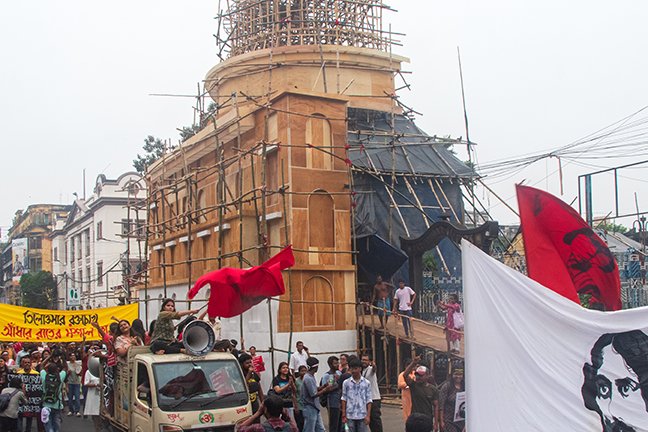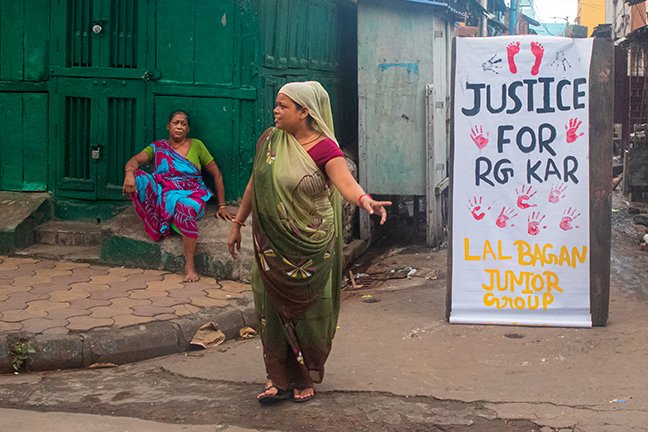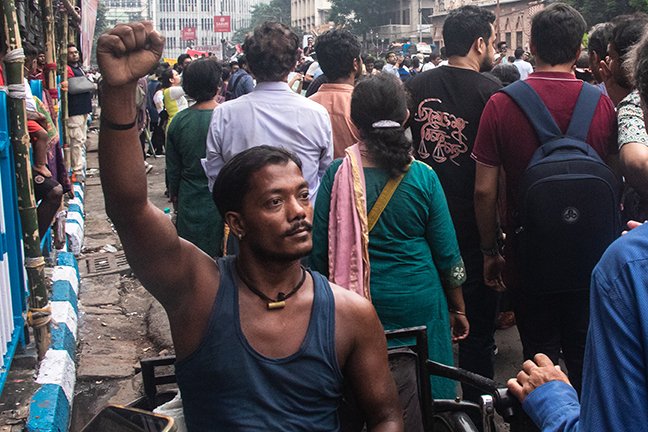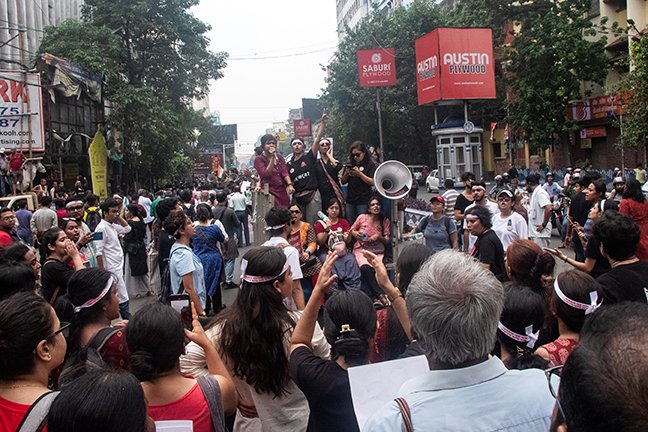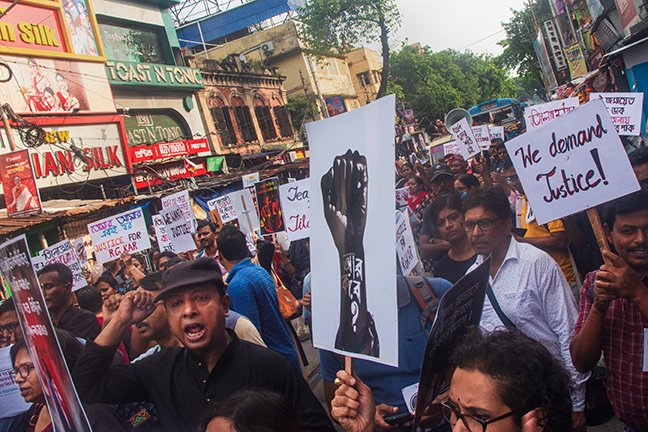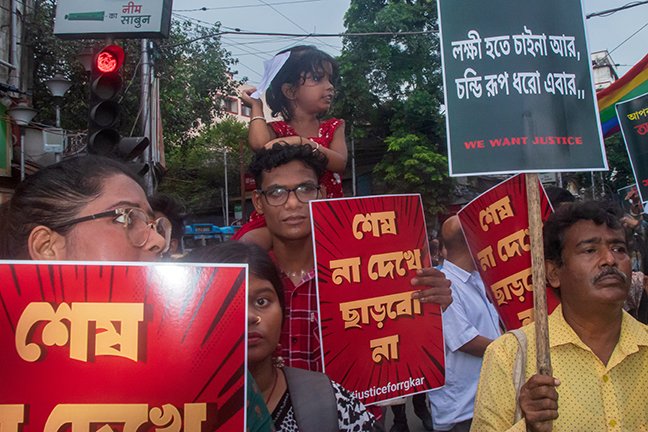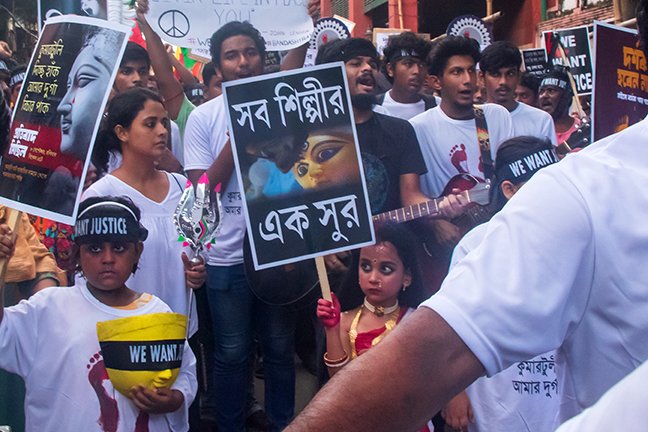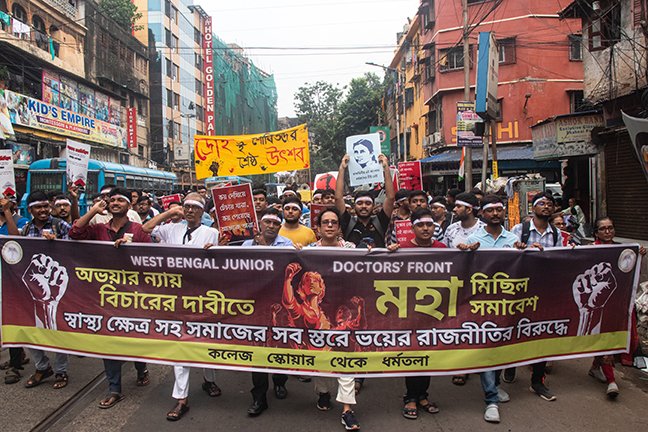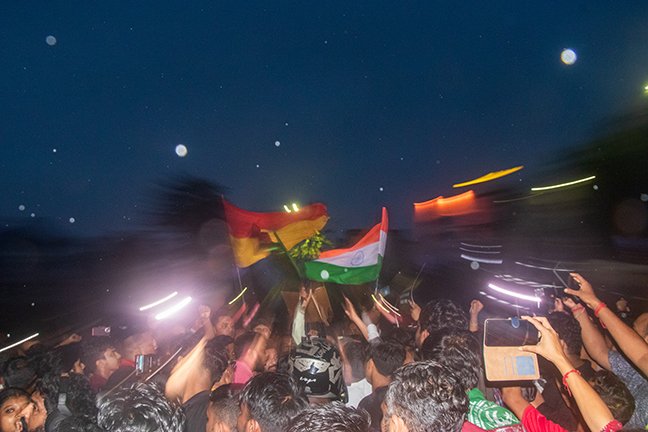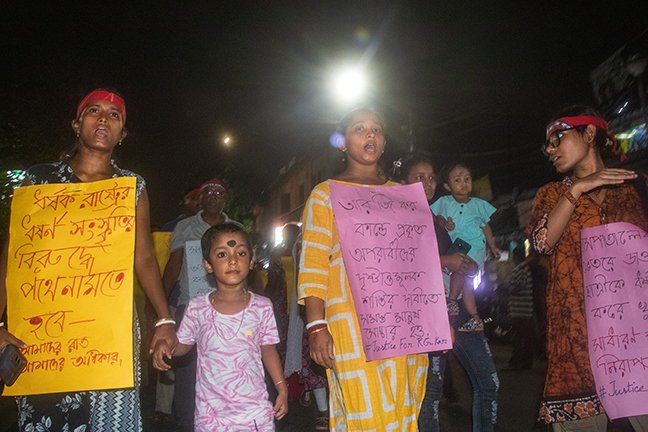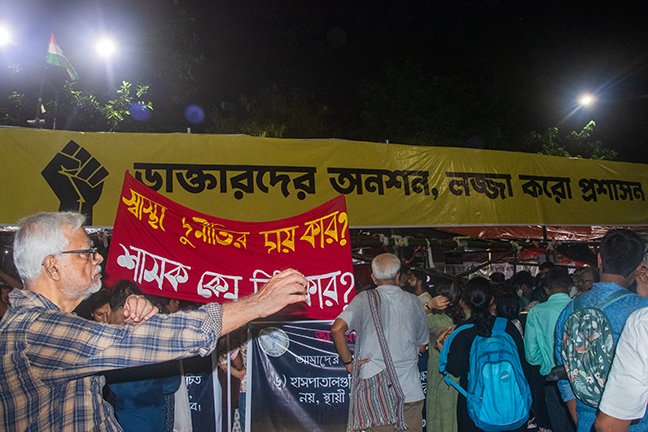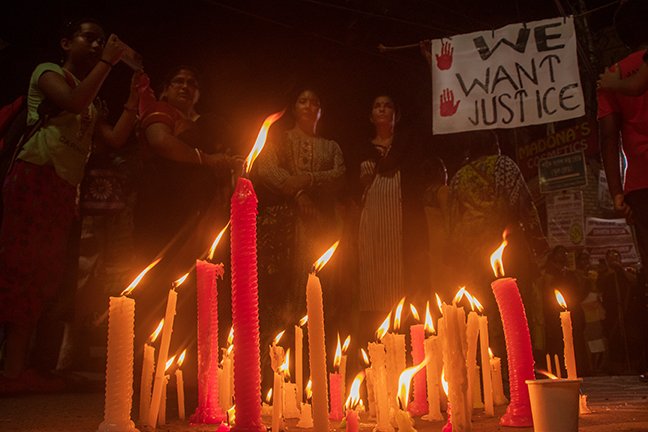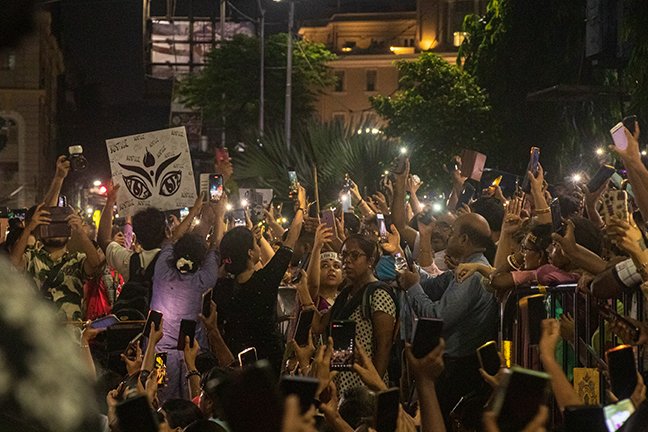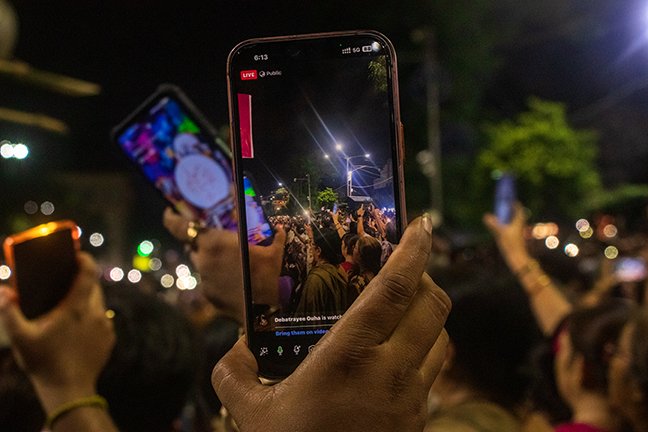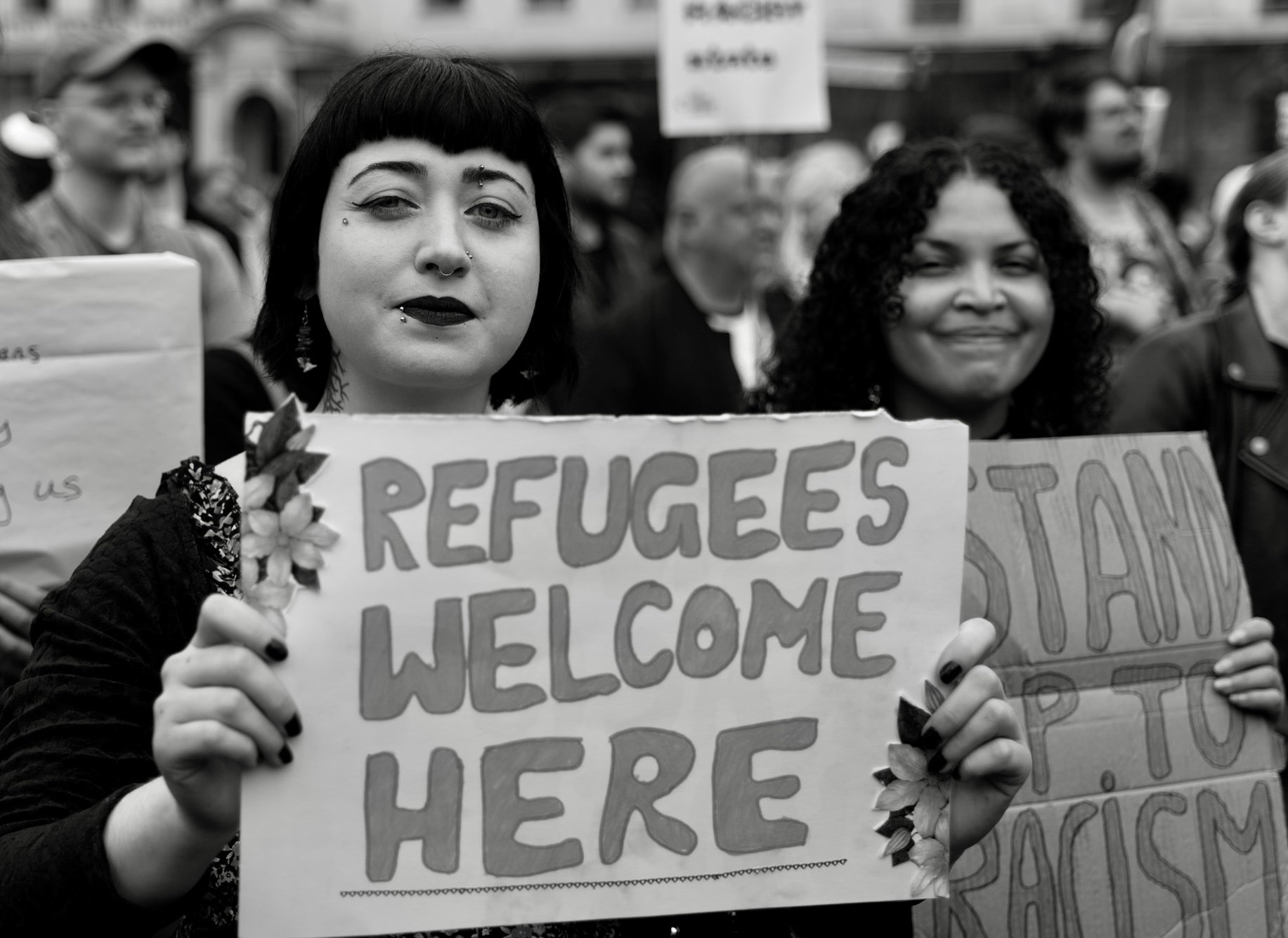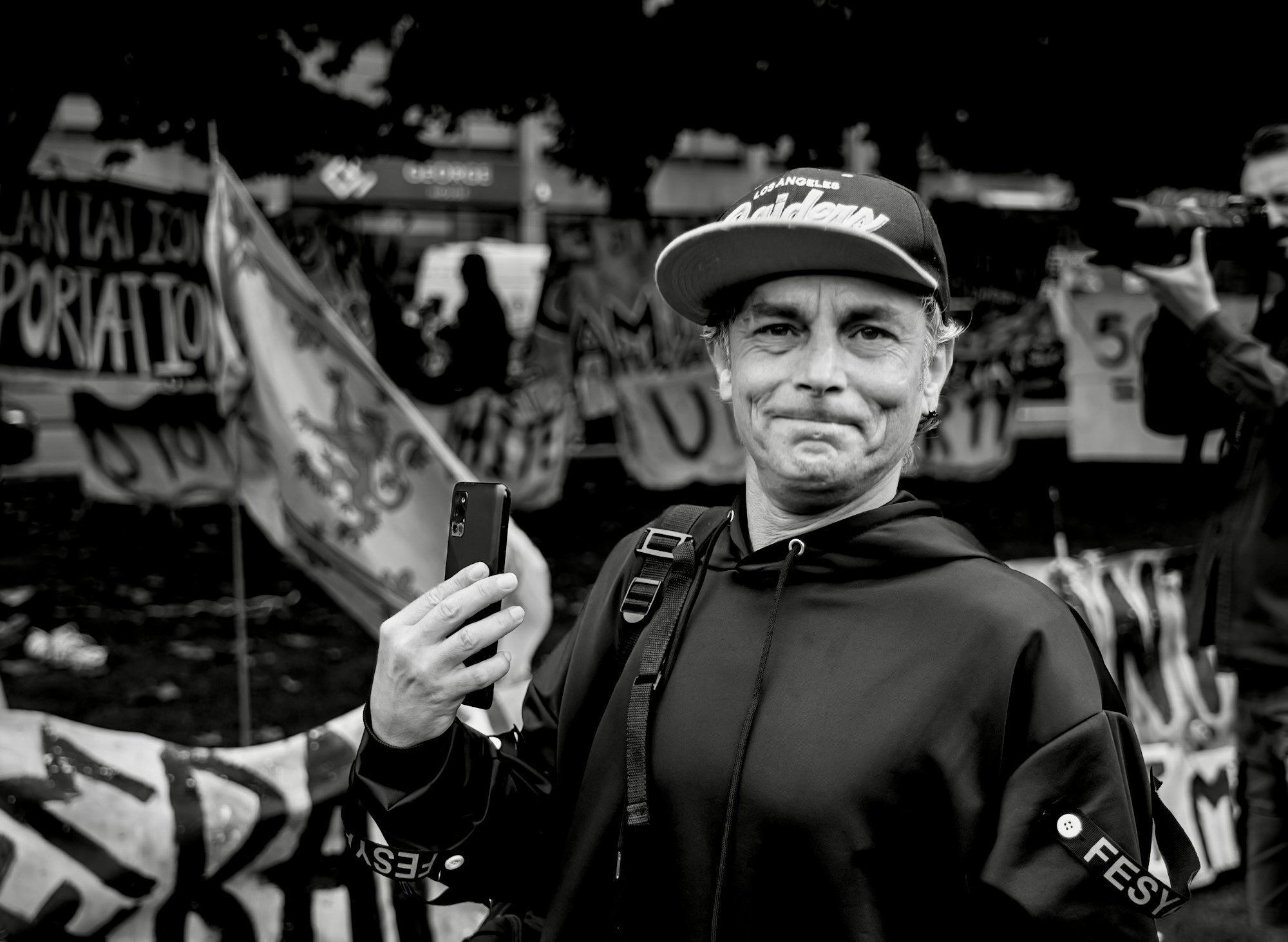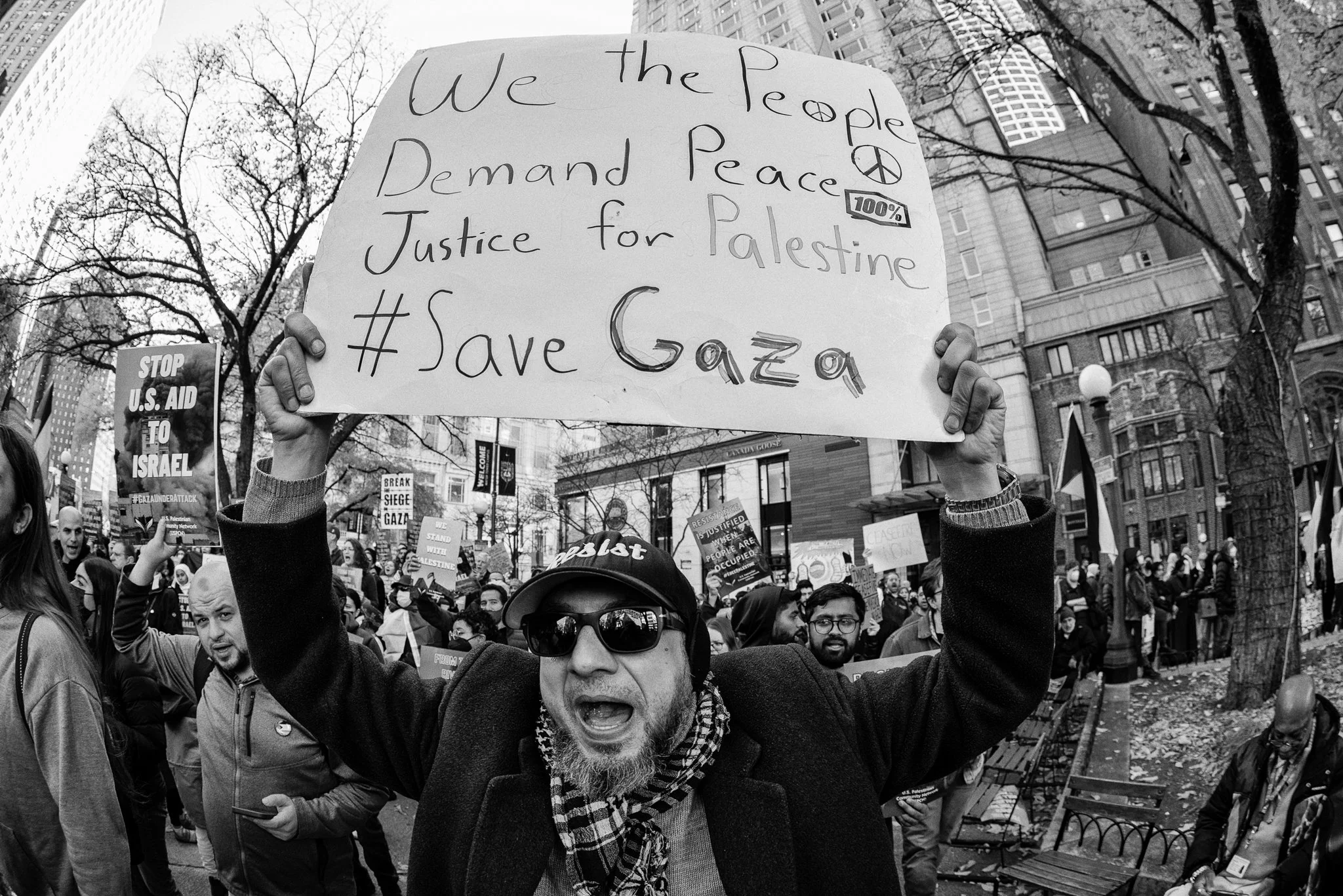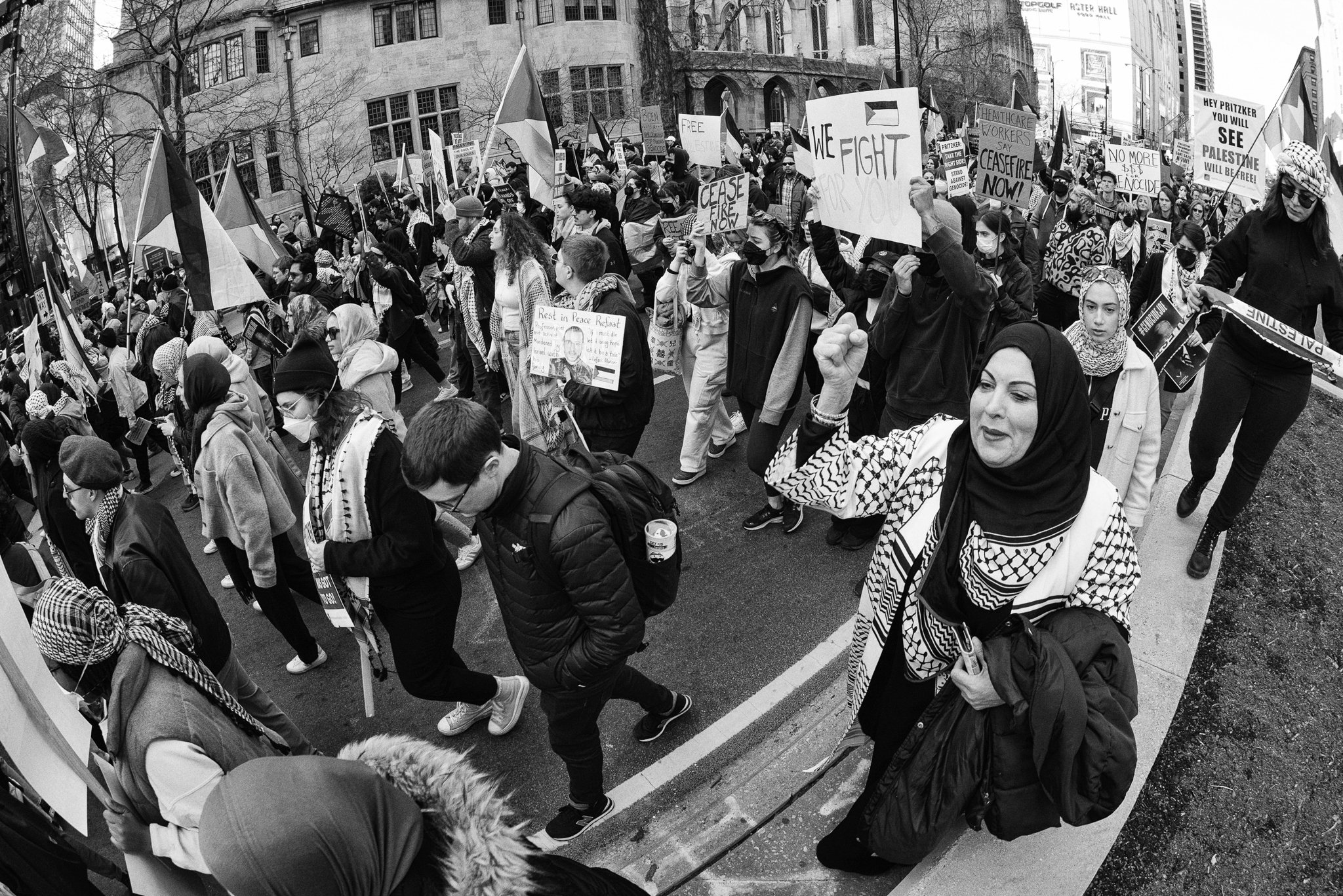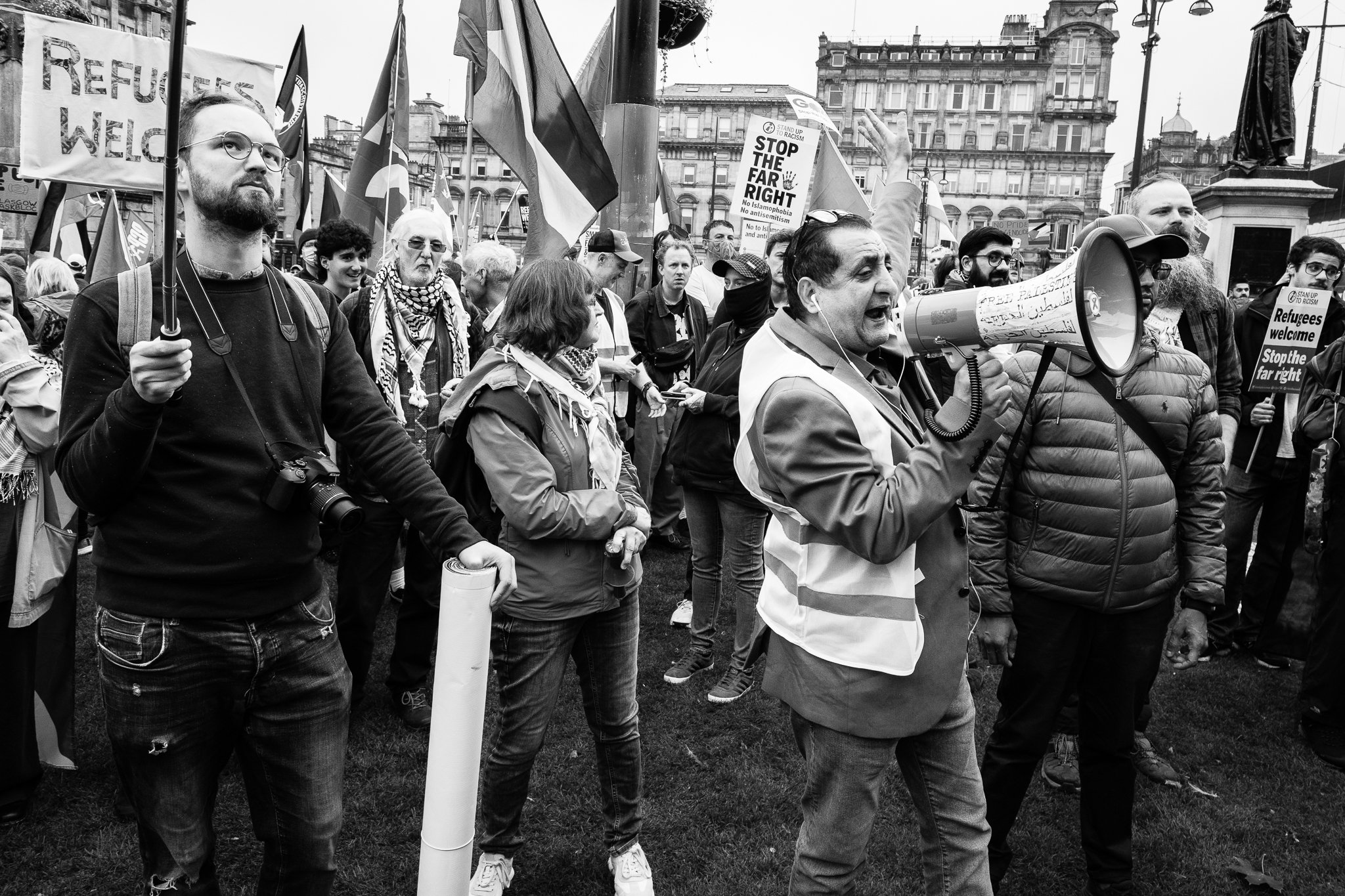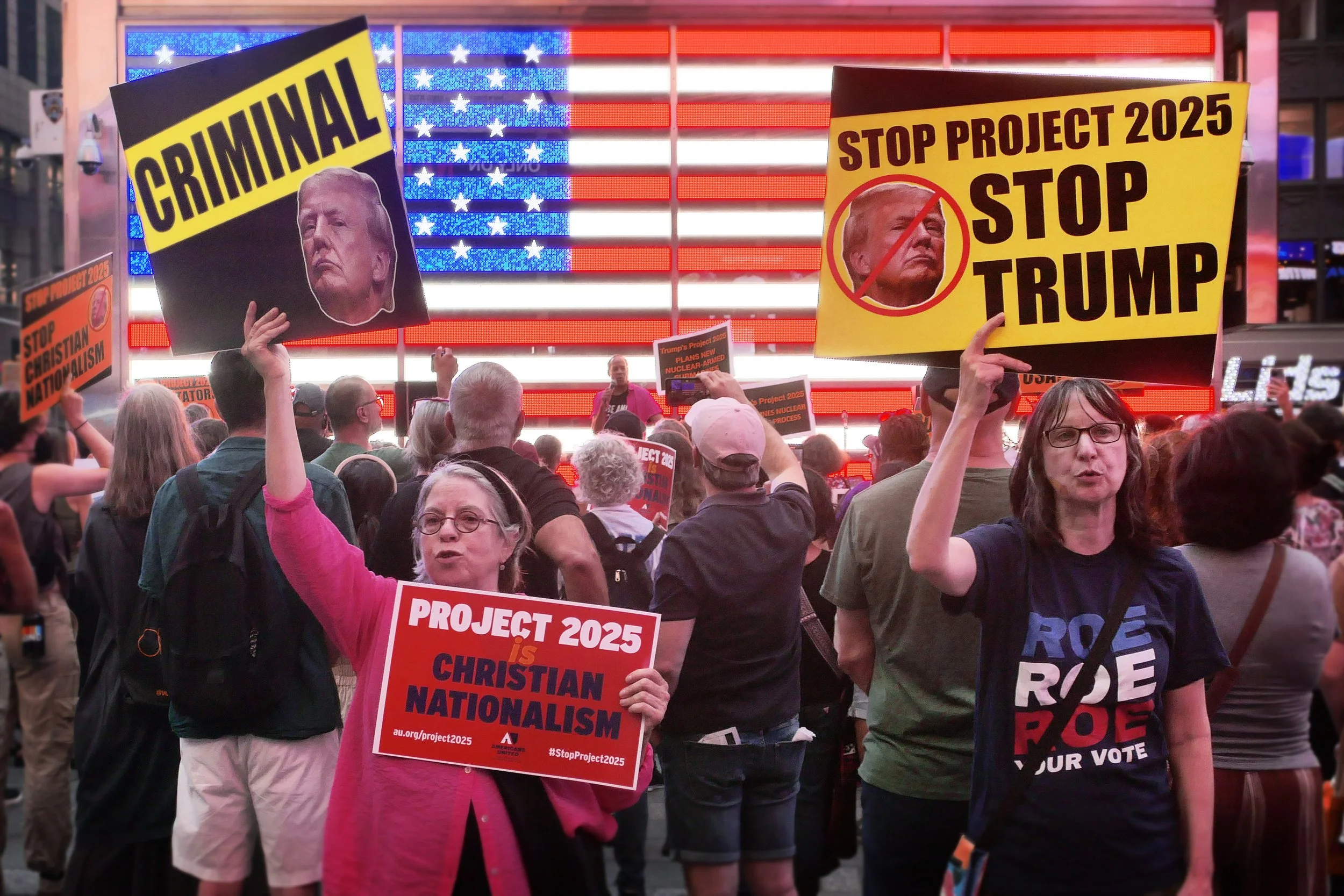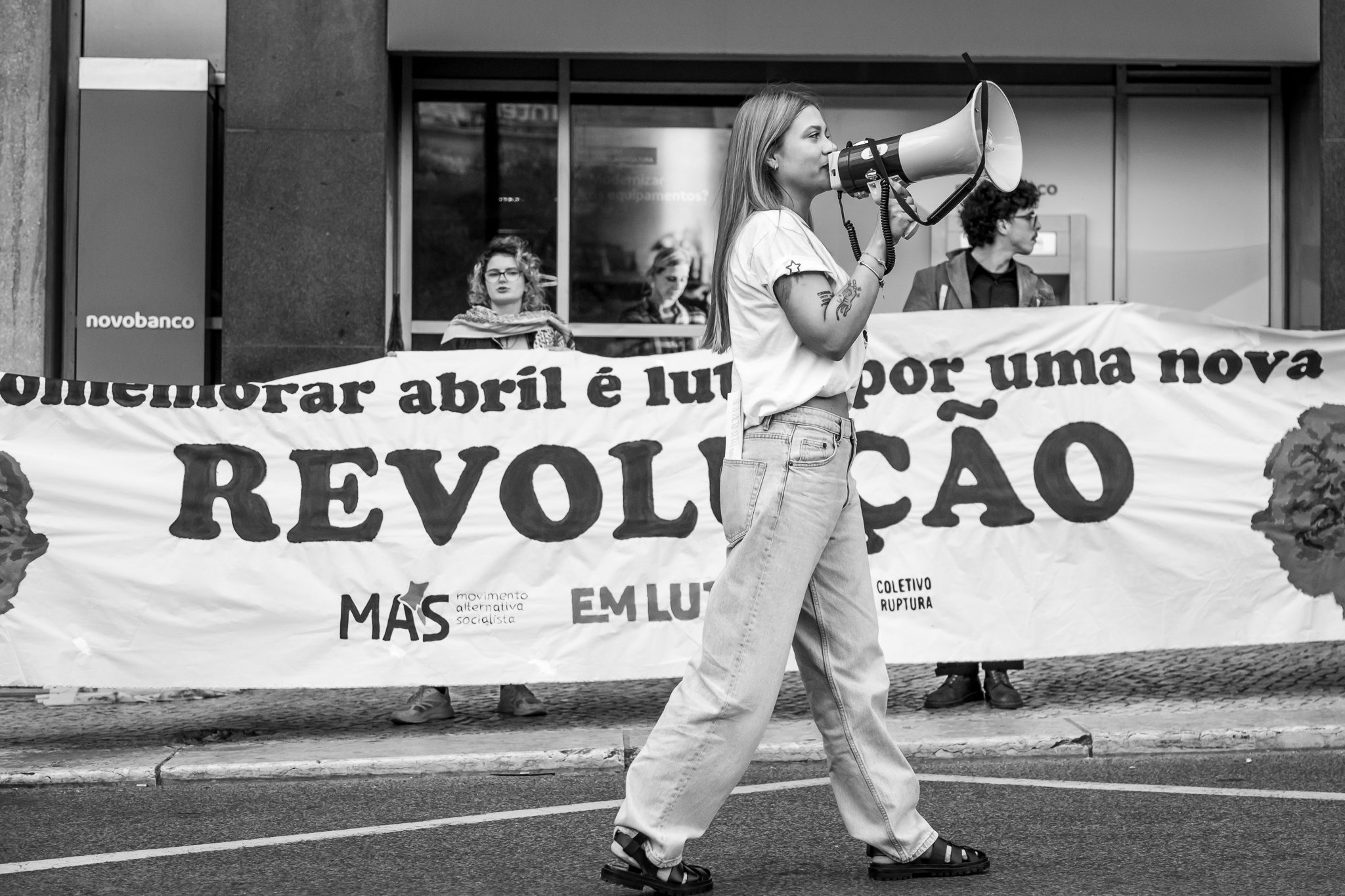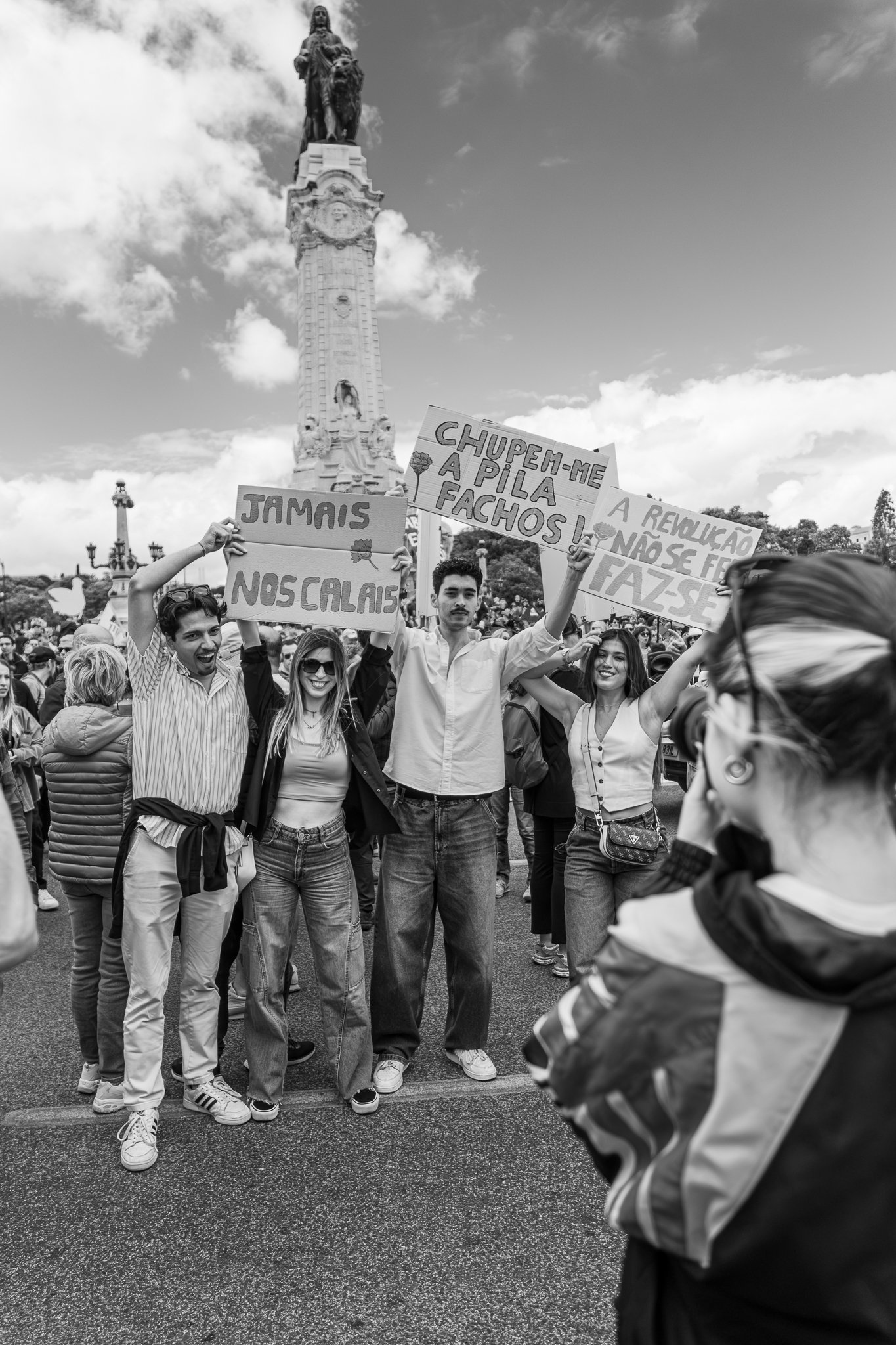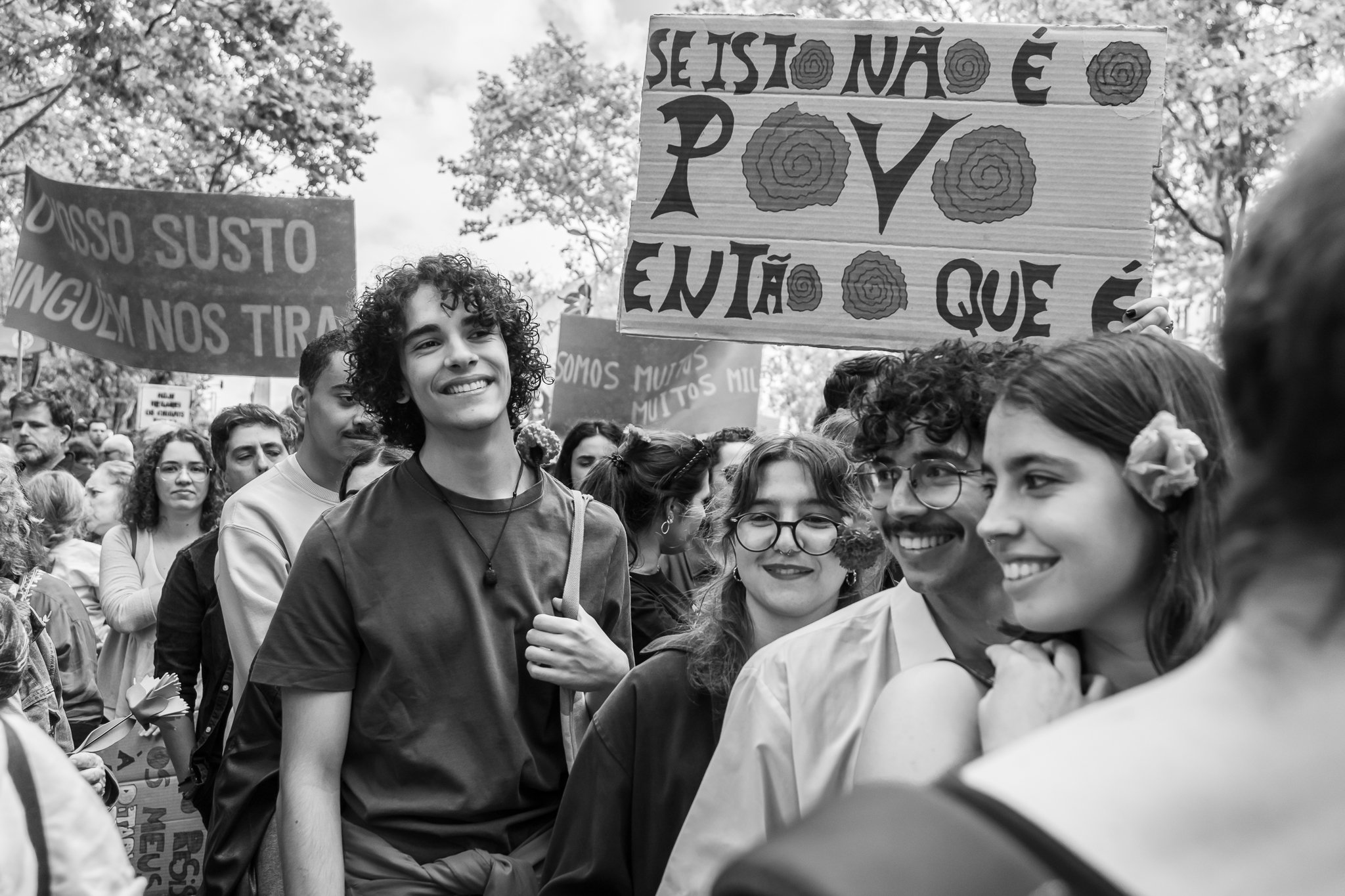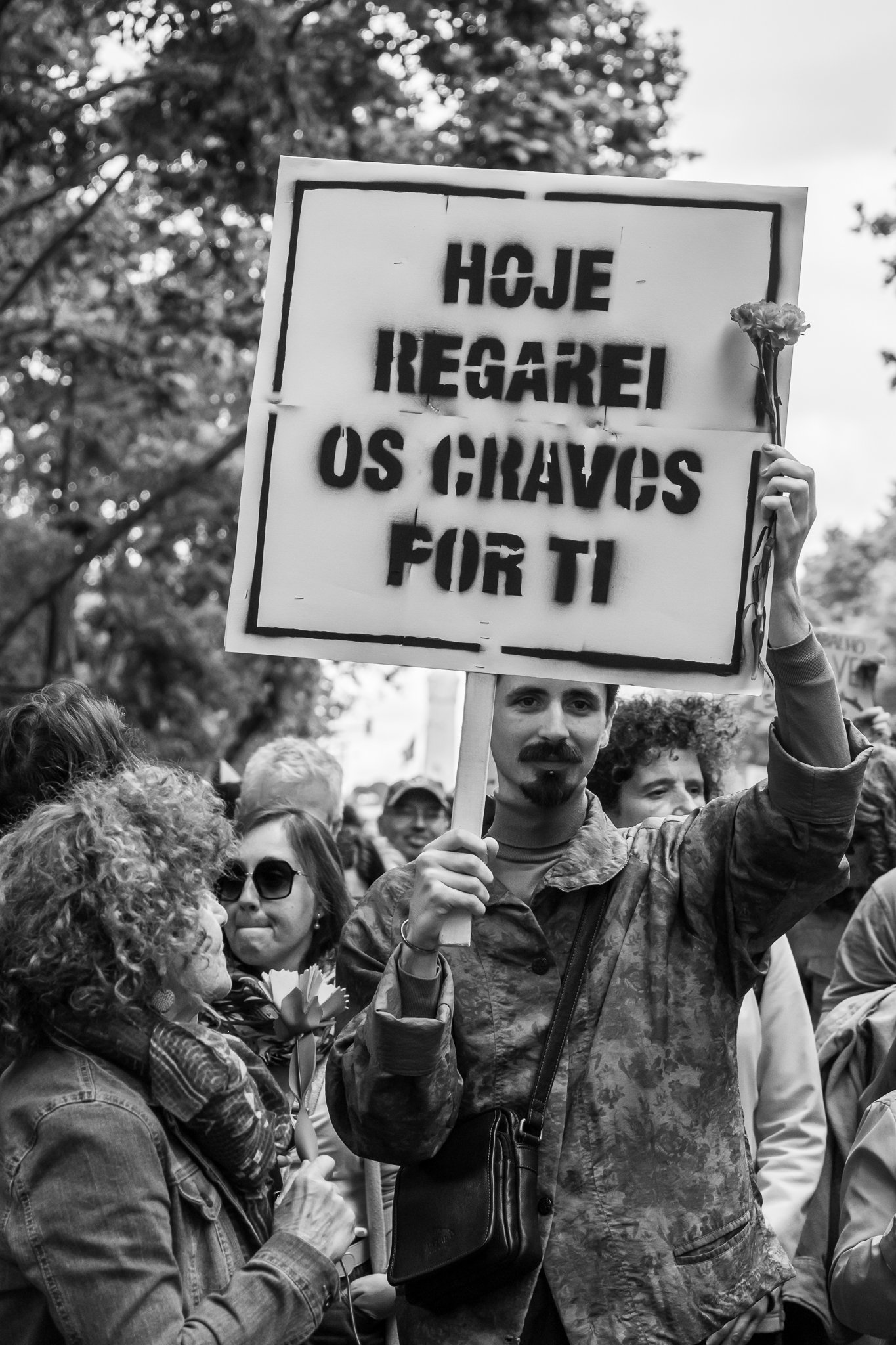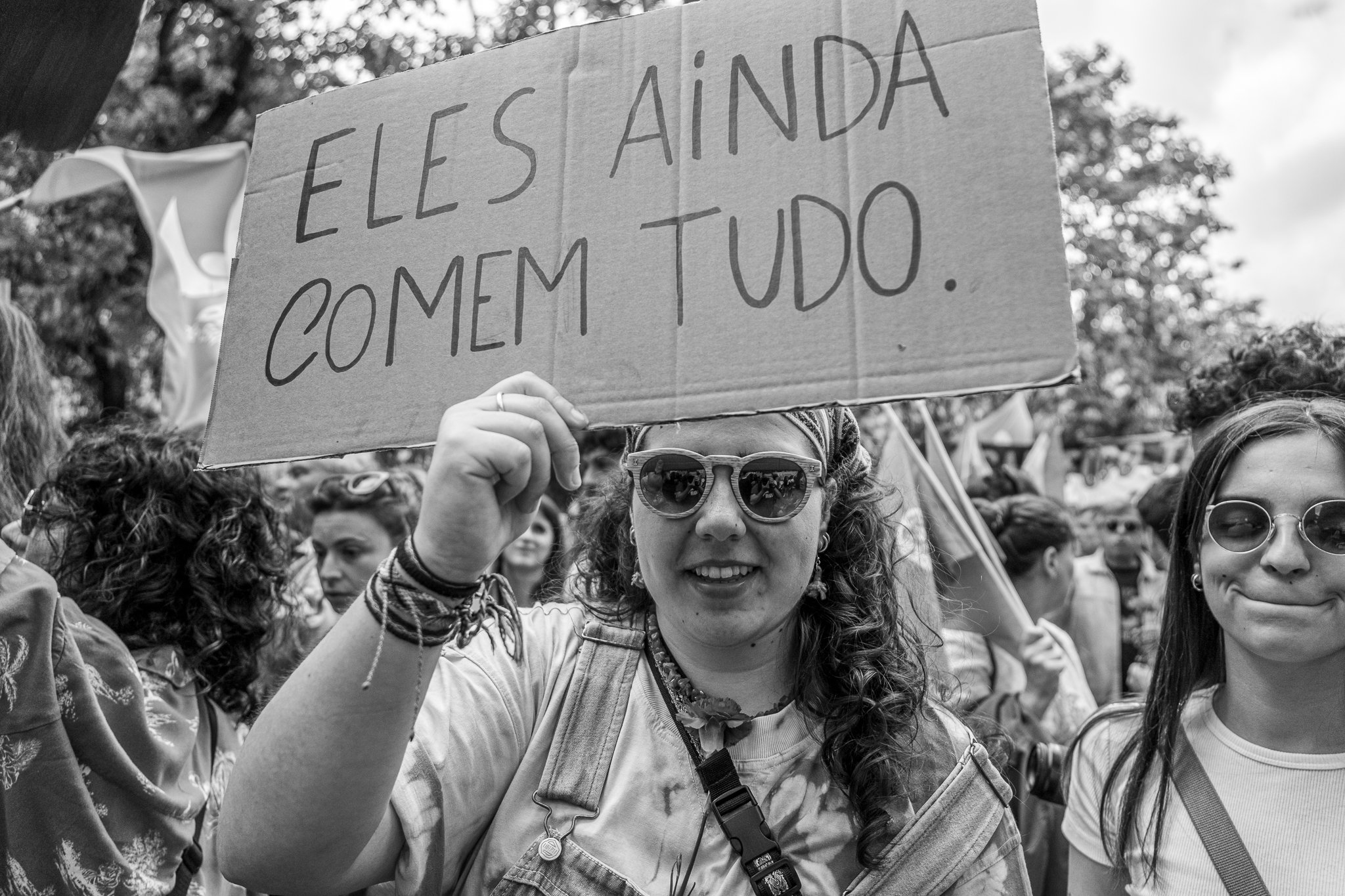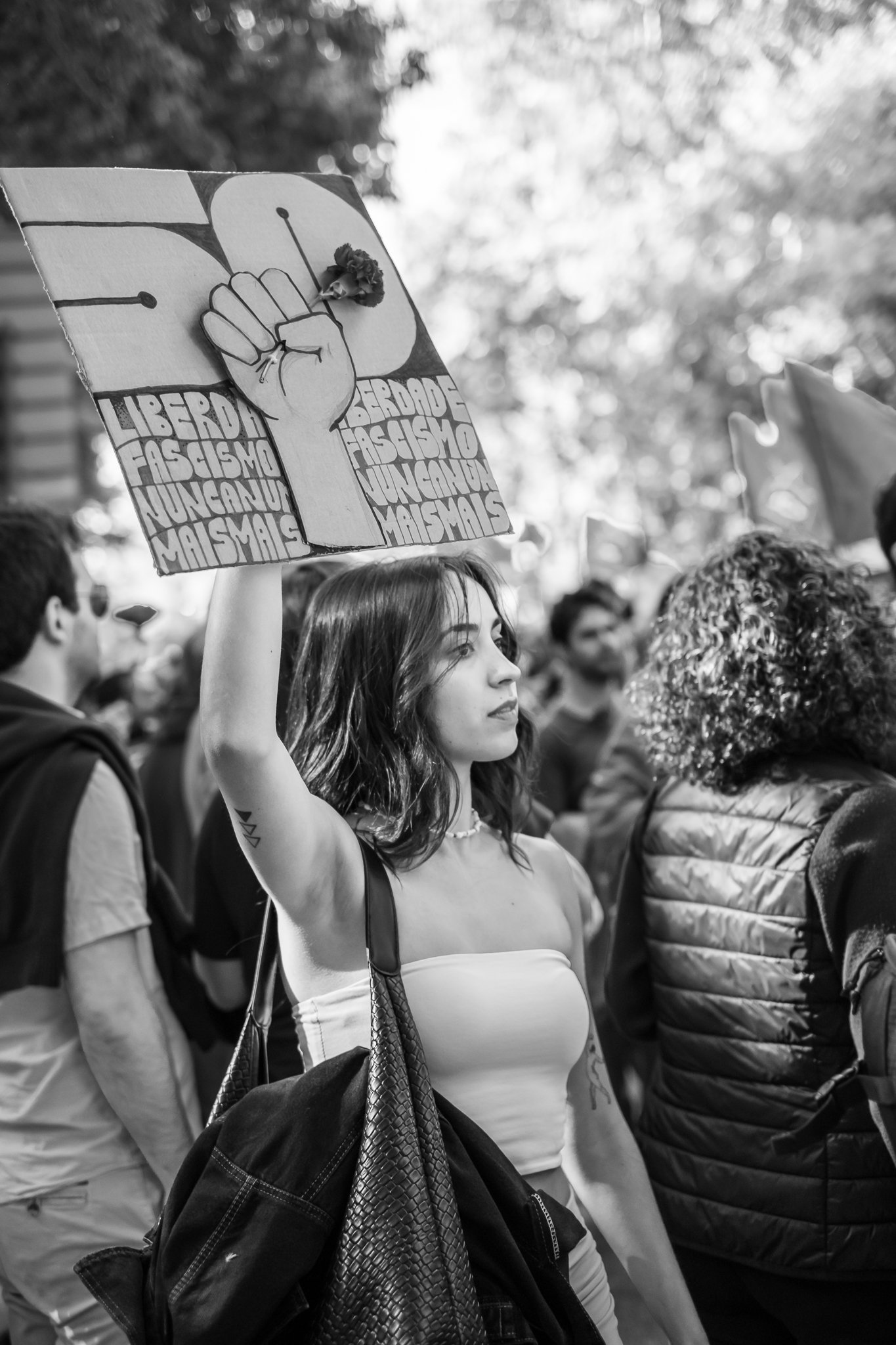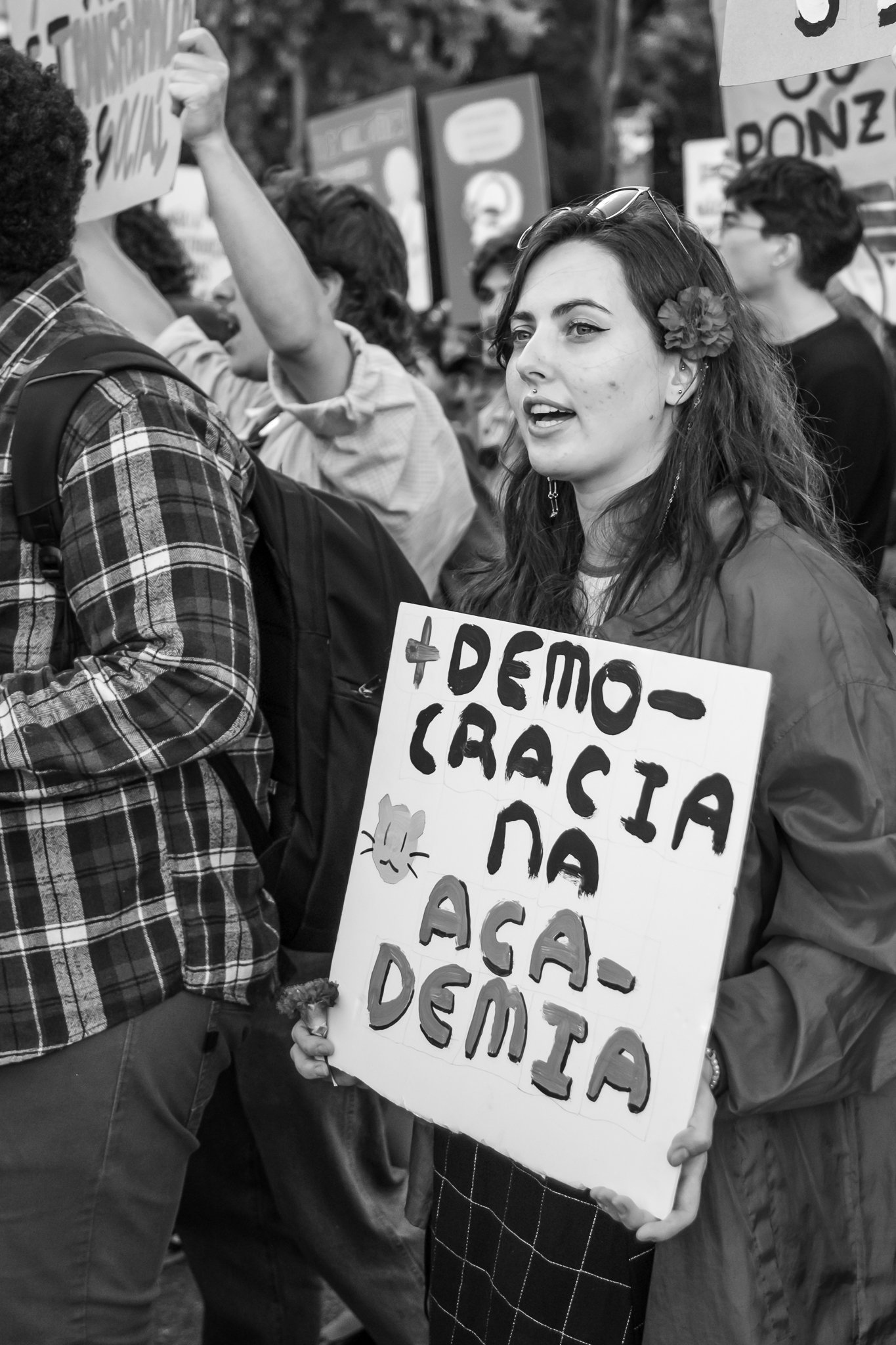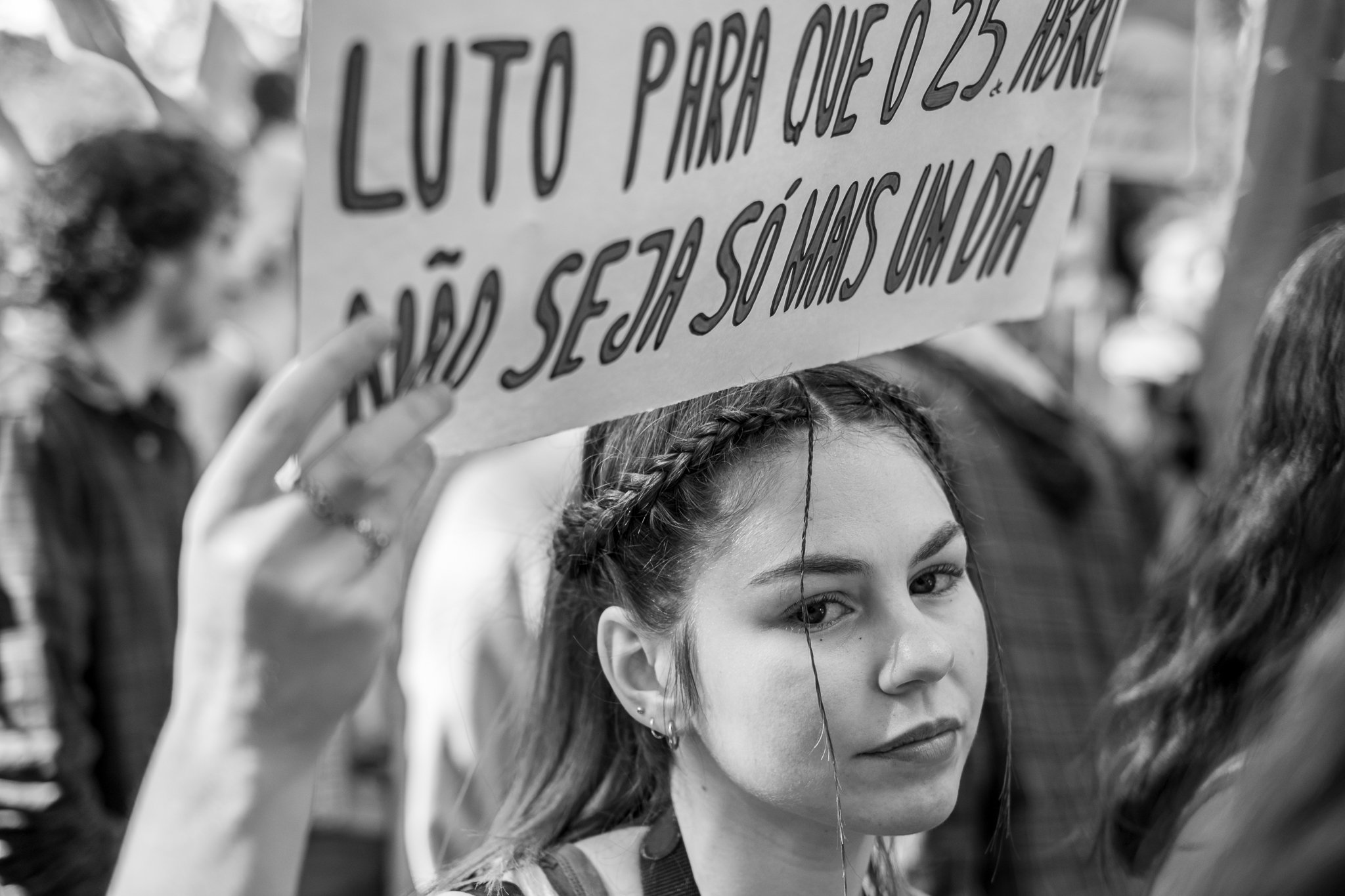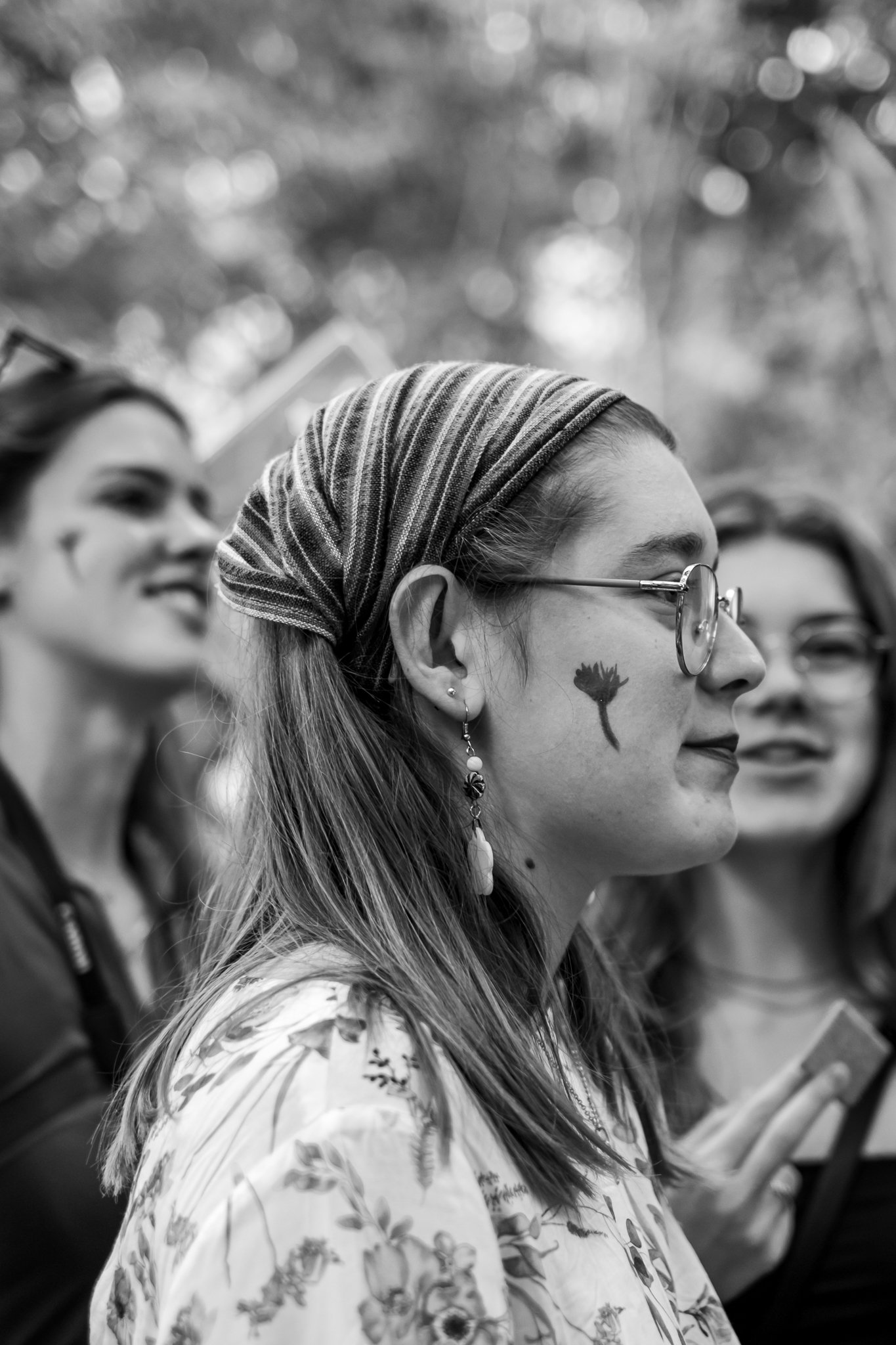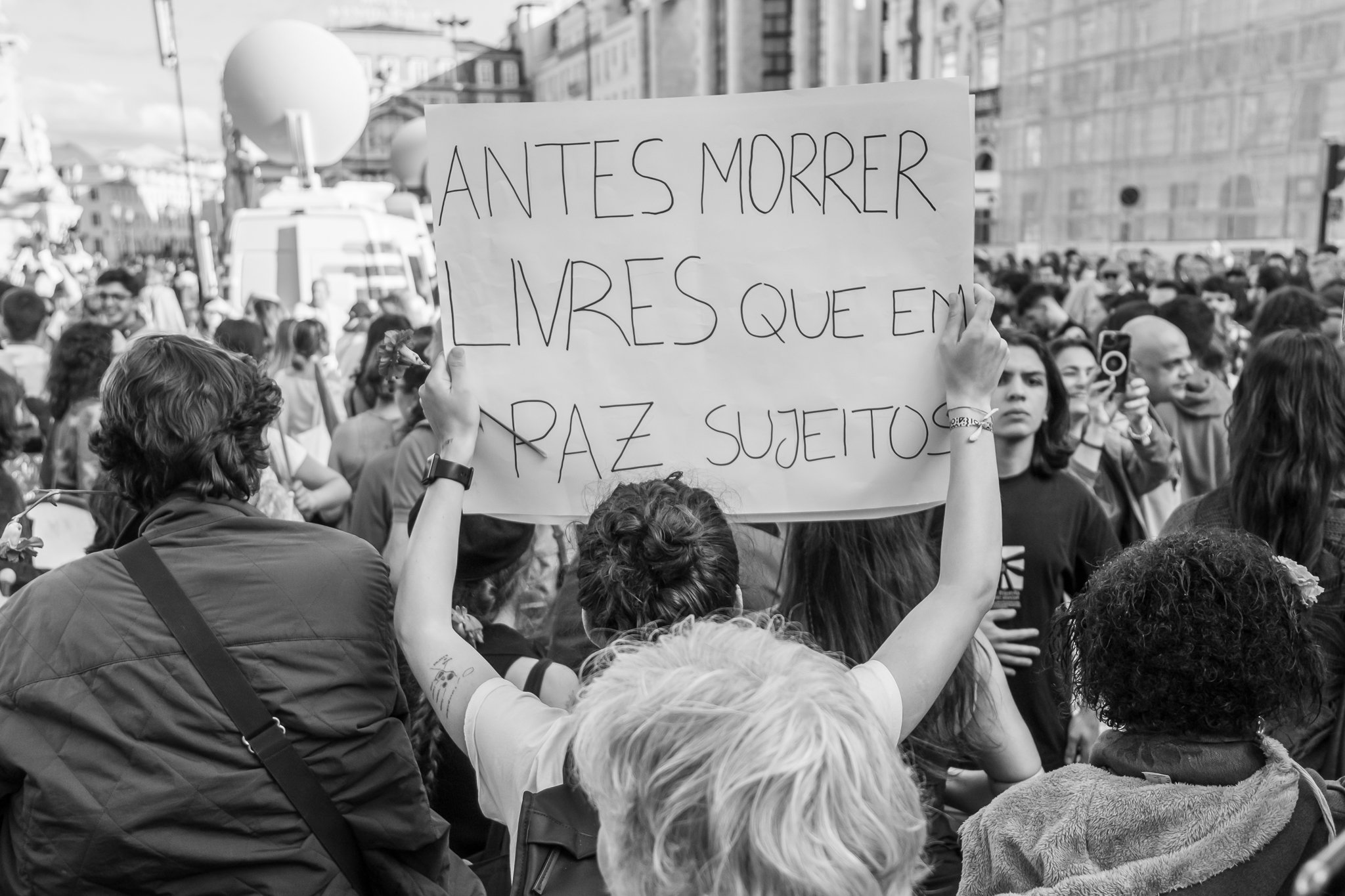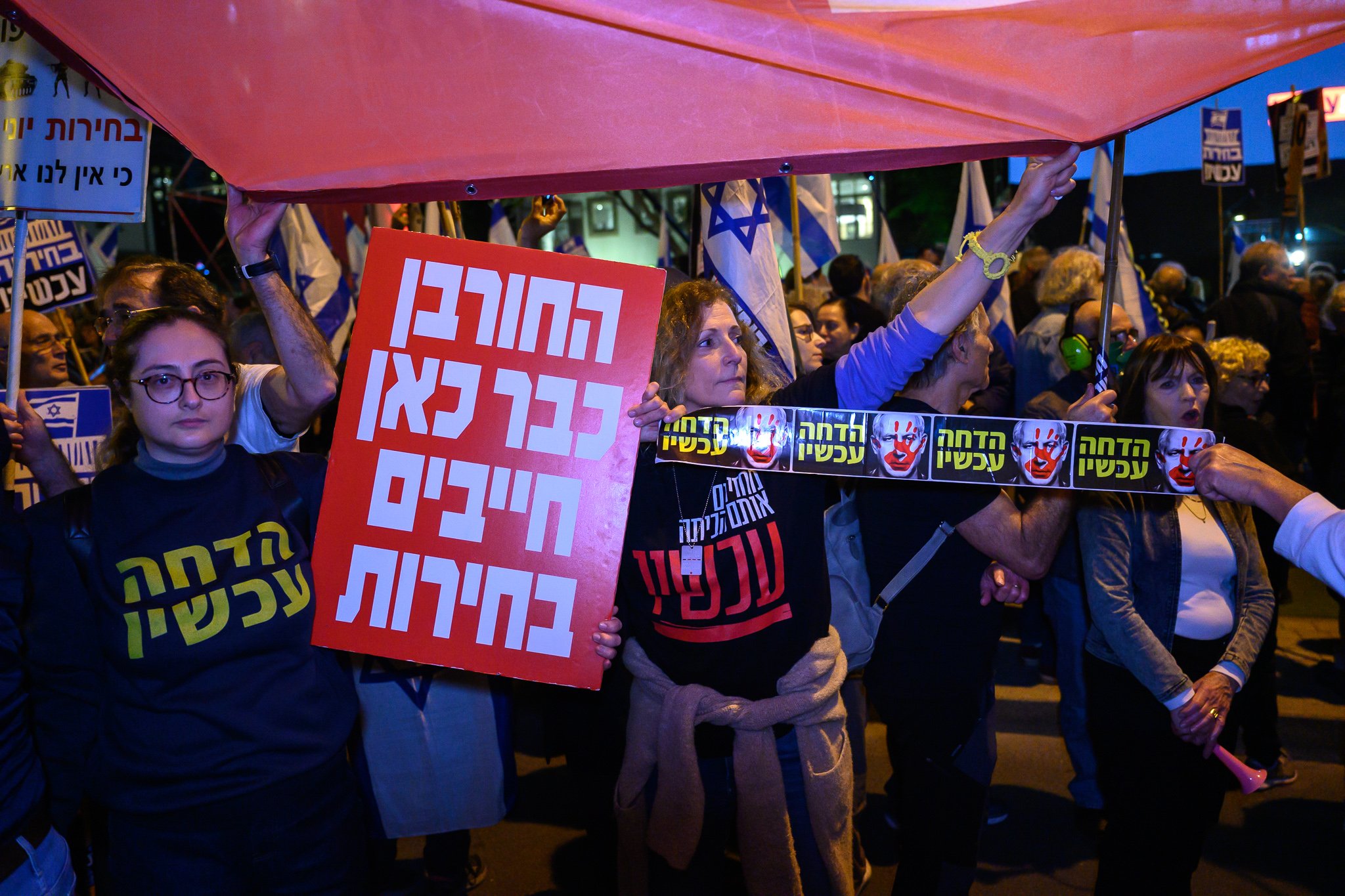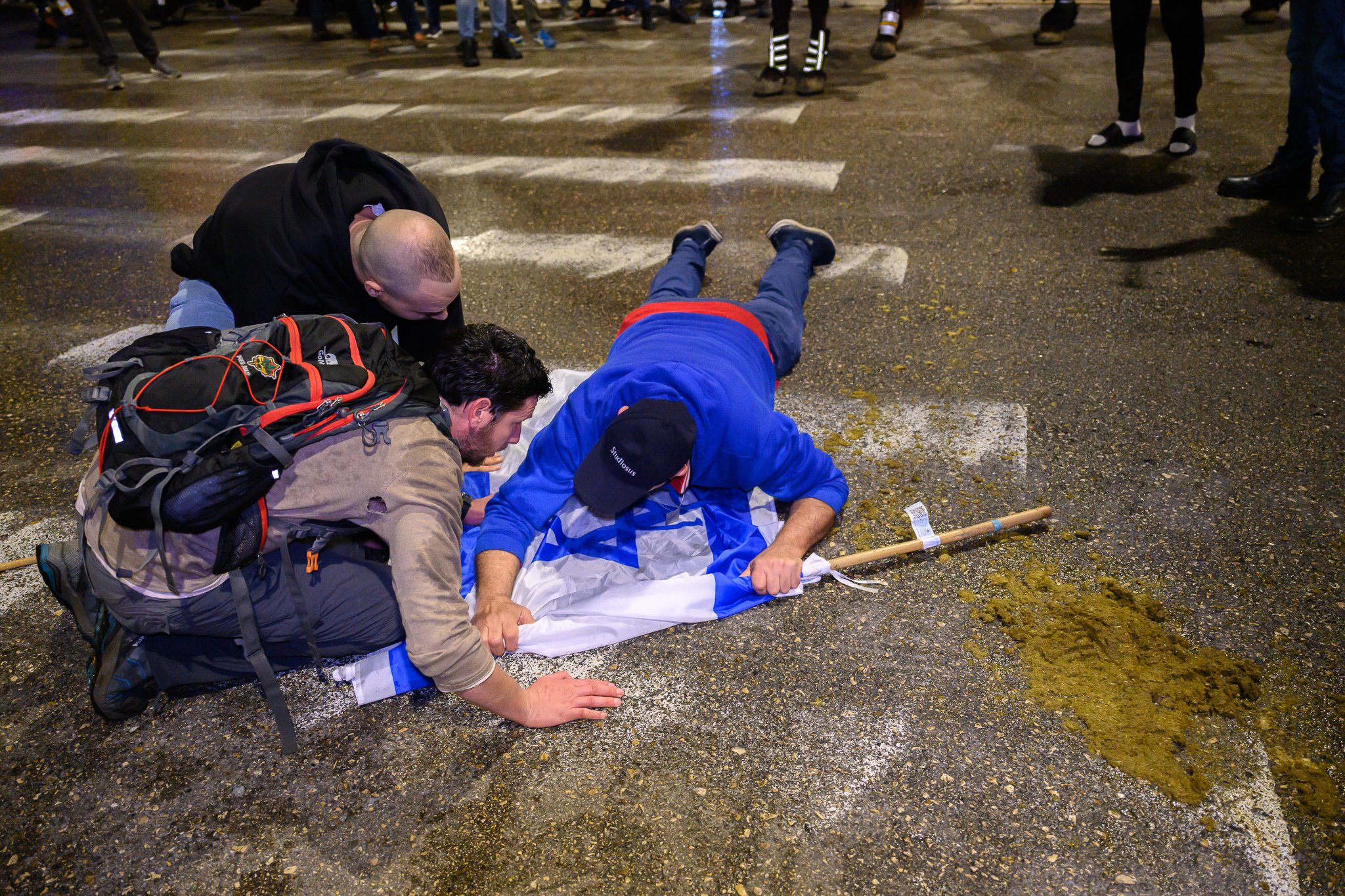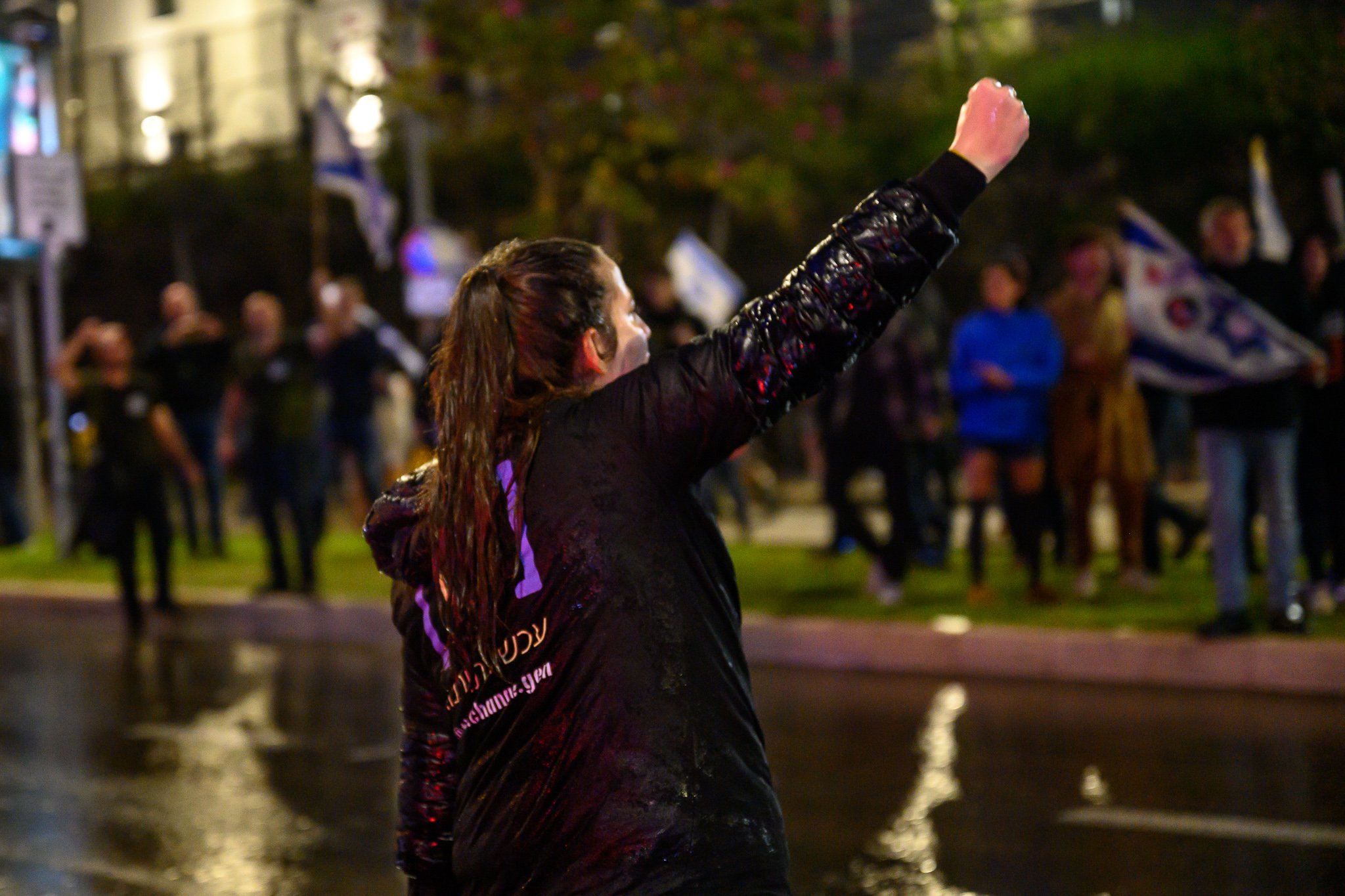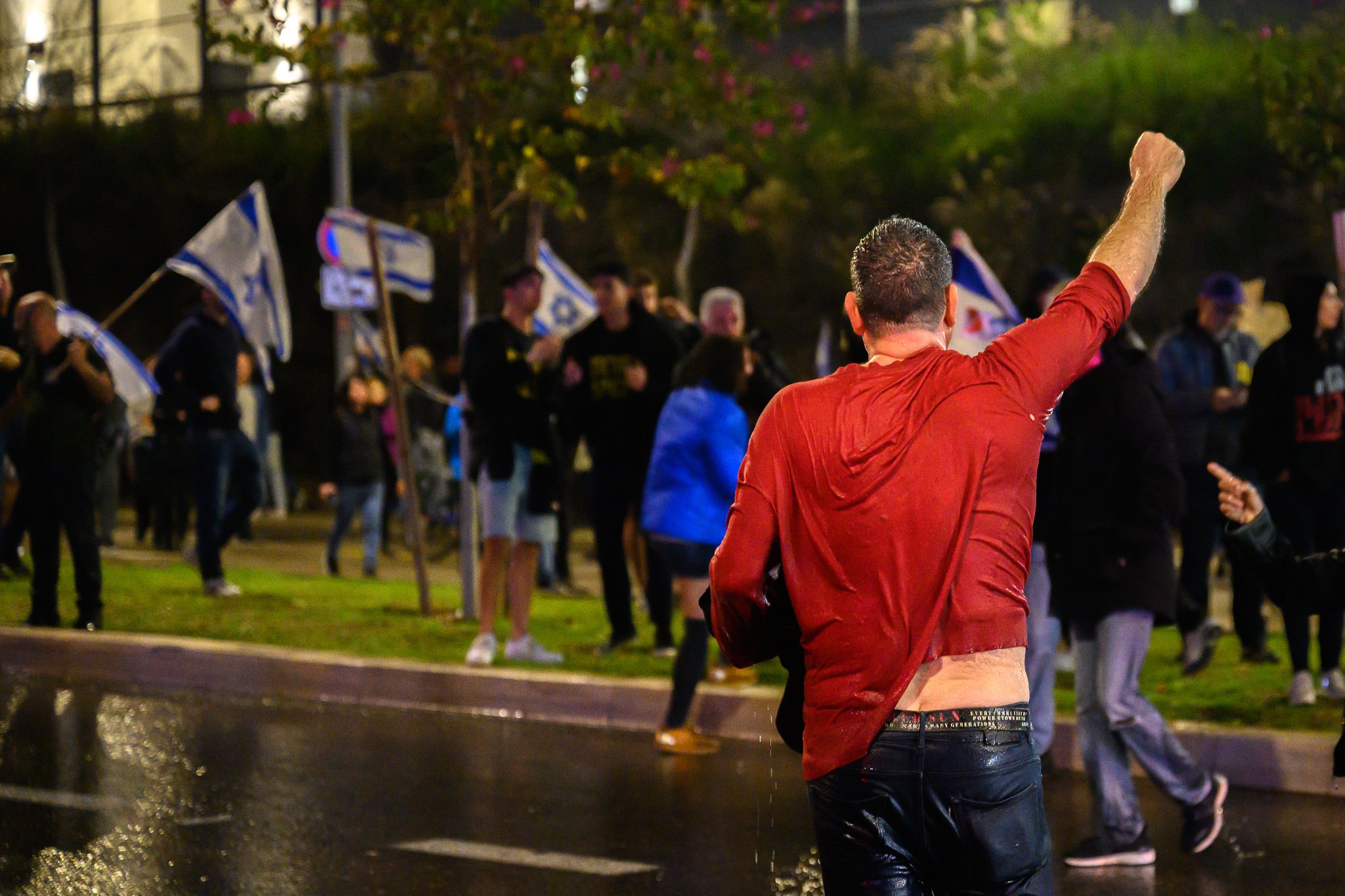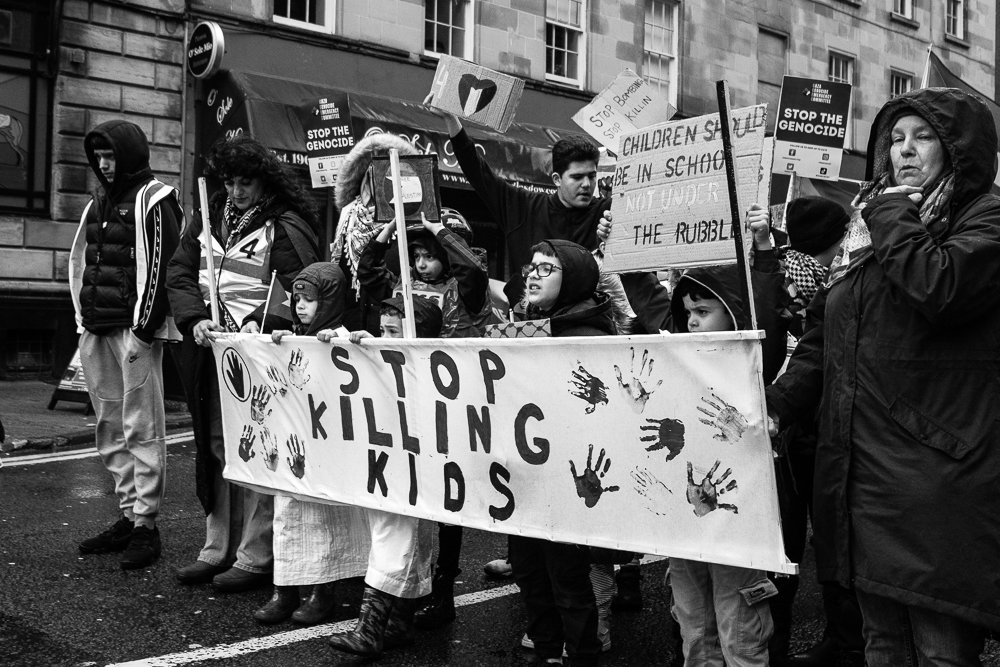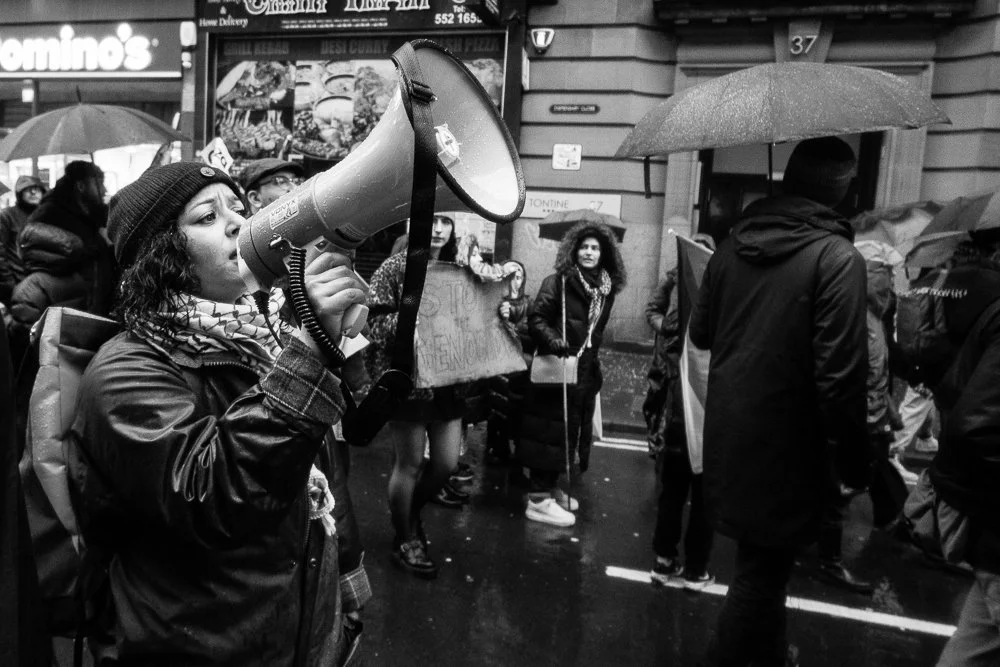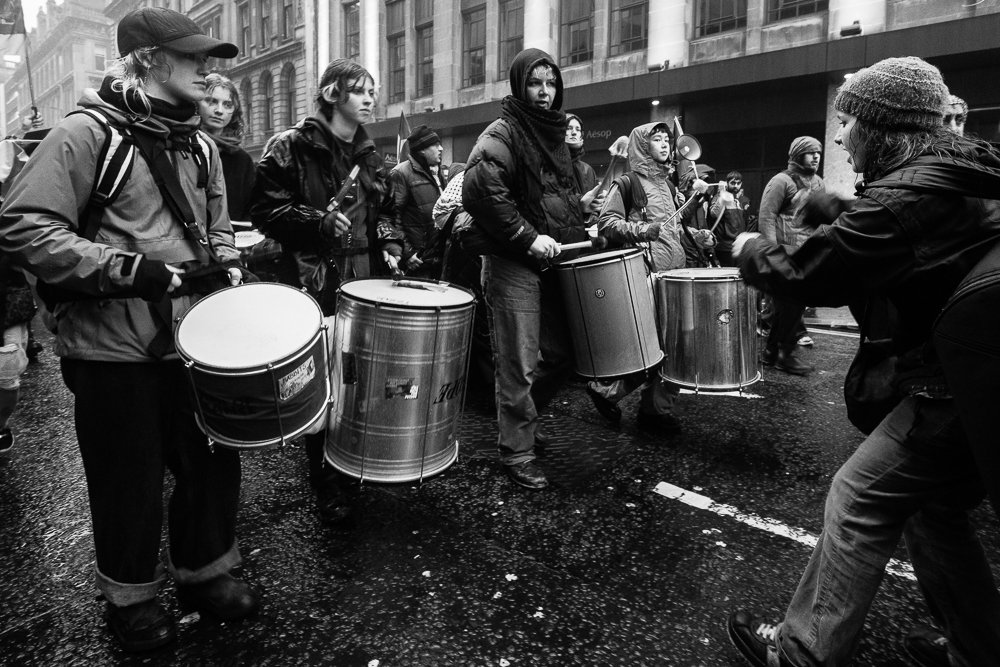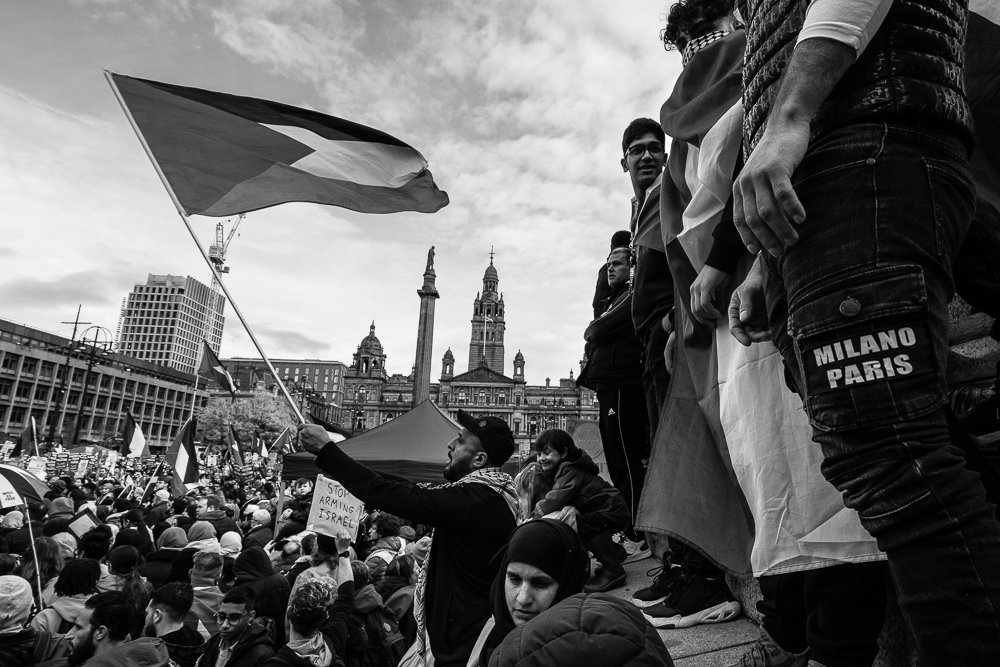My March On Washington
The photographs you have just seen were taken on August 28, 2013, of the 50th Anniversary March On Washington, a sad affair that drew about 5,000 people to Washington on a hot, humid, rain-spattered day. Among the Marchers were a small number of us who were veterans of the original march on August 28, 1963, when some 200,000 adults and children, the majority of them African Americans, staged the largest protest ever seen in the nation's capital. These are my recollections of that first March, and my thoughts about what it did or didn't mean.
Five days after my 17th birthday, my parents dropped me off at the South Norwalk station of what was then the New York, New Haven, & Hartford Railroad to board a special train headed for Washington and history - not that we had a clue about the historic nature of that summer day.
That was the summer when the reality of race in America came home with a vengeance to any conscious white person with a conscience who glanced at a newspaper or watched the 15-minute network nightly news shows. No longer could we ignore the ugly reality: that America south of northern Delaware had a system of apartheid every bit as real, oppressive, and legal as that in South Africa - and that things were only marginally better in the rest of the country. It was the summer of Birmingham, Bull Connor, teenagers rolled across Kelly Ingram Park and across sidewalks by jets of water from fire hoses, and the gnashing teeth of lunging police dogs. It was the summer that NAACP Mississippi Field Secretary Medgar Evers was assassinated in his own driveway. It was the summer that would end with the bombing of Birmingham's 16th Street Baptist Church and the murder of four black school girls preparing for the Sunday service. In the midst of all that, on August 28, came the March on Washington for Jobs and Freedom, best remembered for the speech that Martin Luther King Jr. delivered from the steps of the Lincoln Memorial.
That summer also marked my first, tentative steps into the world of journalism. Shortly after school ended for the year, I showed up on the doorstep of the Town Crier, the weekly newspaper in Westport, Connecticut, and said I was looking for a job as a photographer. The editor said he didn't have any openings - and, of course, I didn't have any experience - but he'd throw me a couple of assignments and pay me $10 for each photo he used.
Sol spent most of that summer driving around lower Fairfield County, shooting softball games, the family of a dog run over by a hit-and-run driver, teenage girls working on the "college boards" of fancy clothing stores, mailboxes knocked down by joy-riding kids, and occupying myself with other assignments typical for a weekly paper in an affluent, sleepy suburb.
At least that was the case until August. Then I was sent to photograph a meeting of a local group planning a trip to the March on Washington, which I had been reading about in the New York Times. I photographed the meeting, and seeing a way to join the march, the next morning I talked the editor of the paper into assigning me to go to Washington with the local delegation to photograph the event. I had long been reading about the civil-rights movement in the Times and Herald Tribune, and remember many discussions about it with my parents, who were supporters - my father later spent a number of years on the board of the NAACP Legal Defense Fund, and was involved with the movement in other, similarly "establishment" ways. The idea of my going to the march, with the threat of violence looming over it, and - we now know, army units as far away as Fort Bragg, North Carolina, on standby - worried my parents, but they eventually agreed.
So around 2 a.m. on the morning of August 28, they dropped me off at the Norwalk station with my Pentax camera, nine rolls of Tri-X film, and a letter from the editor of the Town Crier identifying me as a photographer for the paper - a letter that would hold no sway with the D.C. police.
The only thing I remember about the trip down, other than the cars crowded with largely sleepy, and sleeping, march-goers - the majority of whom were black - was a girl with whom I quickly connected and talked most of the way down. We two white teenagers, she in her madras shirtwaist and I in my neatly pressed khakis and striped, button-down shirt, must have really stood out in that sea of black faces. But we were oblivious to our "otherness" and saw ourselves in common cause with all our fellow passengers.
We rolled into Washington's Union Station around 8:30 or so. It was already quite warm and humid, but far cooler than it would be by mid-afternoon.
Drawing confidence from each other, my new friend and I joined the throng pouring off the arriving trains and out of Union Station into the blindingly bright sunshine in the plaza to the northwest of the Capitol steps.
The rest of the day was a blur, with a few of memories standing out: I remember being part of the crowd marching west on Constitution Avenue, past the already 20-year-old "temporary" shed-like office buildings built for the workers who flooded Washington during World War II. I remember the near-constant singing of anthems such as "We Shall Overcome." I will never forget the mood of hope, and the near universality of smiling, friendly faces, and courteous behavior. I recall photographing Connecticut Democratic Senator Thomas Dodd. I recall hearing Peter, Paul, and Mary, Bob Dylan, and Joan Baez. I remember that by early afternoon it was ungodly hot, and my friend and I ended up sitting on the edge of the northwest corner of the Reflecting Pool, our feet dangling in the tepid water.
The speeches? In that oppressive sun and heat, having been up since the previous day? Sadly, I remember little. I wish I could say I remembered hearing John Lewis, and Whitney Young, and Bayard Rustin, but I can't. I do remember hearing A. Philip Randolph speak in his booming, oh-so-formal baritone - who could forget that? And of course I remember hearing Martin Luther King tell us about The Dream. I remember being moved by the speech, by its magnificent cadences, and even today I recall being almost levitated with that final, thunderous, and magnificent prediction that America would become a nation in which "all of God's children, black men and white men, Jews and Gentiles, Protestants and Catholics, will be able to join hands and sing in the words of the old Negro spiritual, 'Free at last! Free at last! Thank God Almighty, we are free at last!"
Did I realize at the time that I had heard what is today ranked as the greatest political speech of the 20th century? Did I realize that I had just heard, was experiencing, one of the great moments in modern American history? Did I understand the real import of that day? I don't think so. Nor do I think most of the other people baking in the heat quite grasped the grandeur of the moment. By the time Dr. King walked away from the podium that afternoon, the majority of us had been traveling, marching, and parboiling for anywhere from 15 to 24 hours. It's hard to remember much else, other than somehow ending up on the train for the long trip home.
When I went into the office the next morning with my nine exposed rolls of film, thoroughly exhausted but still vibrating from the emotional high, the editor told me he wanted me to write a "story" to go with my photos. I hadn't a clue about how to write a news story, or real commentary for that matter, which is my way of apologizing for the naïvete my first newspaper byline. In its defense, I believe to this day that I captured the essence of the day. Sadly, the photos and my little "story" ran under a headline reading, "Our man, 17, marched on Washington," which, needless to say, missed the point of the march and grossly belittled its significance. Here's what I wrote, six days past my 17th birthday:
"Wednesday's March on Washington radiated a feeling of Peace and urgency.
There were about 200,000 guests in our nation's capitol and yet there was only one minor incident, and that bit of trouble was caused by a bunch of neo-Nazis and not marchers.
"Everyone was friendly and full of enthusiasm. People didn't seem to mind getting pushed and shoved, even the police were friendly and courteous. All the people in the parade, blacks and whites, adults and children, Christians and Jews, all marched as brothers. People were tired from traveling long distances, but they didn't take it out on other people.
"Although everyone was friendly to all outward appearances, there seemed to be an underlying feeling of great tension, and urgency. People were parading for a cause which has been shoved into the background for the last hundred years and has finally reached a crisis. The most strongly emphasized word in all the slogans and songs was 'NOW!' People want their constitutional rights NOW, not tomorrow, or a week from now, or five years from now, but NOW, today.
"People were polite and courteous on the 28th, but how long will they remain passive? The 200,000 were just a representative force. All the people behind the civil rights movement could not have possibly gotten into Washington. I think the March showed that these people are willing to politely ask for their rights but they may not be quite so polite in the future if they don't get what they're after NOW."
NOW did not come quickly. It did not come without further suffering and bloodshed. Yes, the march was followed in surprisingly quick succession by the Civil Rights Act of 1964 and the Voting Rights Act of 1965 - neither of which would have passed without the boost provided by the horror of John F.
Kennedy's assassination in November 1963, the political brilliance of President Lyndon Johnson, and the dedication of Senator Hubert Humphrey.
But those victories were followed by a string of summers in which large areas of major American cities burned as a result of the pent-up expectations and rage of black Americans trapped in a cycle of poverty and oppression. King was quite predictably assassinated five years after the march, as was Bobby Kennedy, who in his campaign for the Democratic nomination for president had picked up King's torch.
On August 28, 2013, half a century after King preached about equality, justice, non-violence, and an unpaid promissory note, Barack Obama, the nation's first black president, spoke from the steps of the Lincoln Memorial. There is no doubt that much has changed. But the Voting Rights Act of 1965 has been gutted, Detroit is in bankruptcy, our prisons are bursting at the seams with black men, most of our urban school systems are still failing dismally, it is not yet safe for a black teenager wearing a hoodie to walk through a white neighborhood, and to be black in America is still to be the other.
I wish more had changed since that summer long ago when I turned 17.
All text and photographs (c) B. D. Colen 2013 – Portions of the text were first published in TheAtlantic.com



























